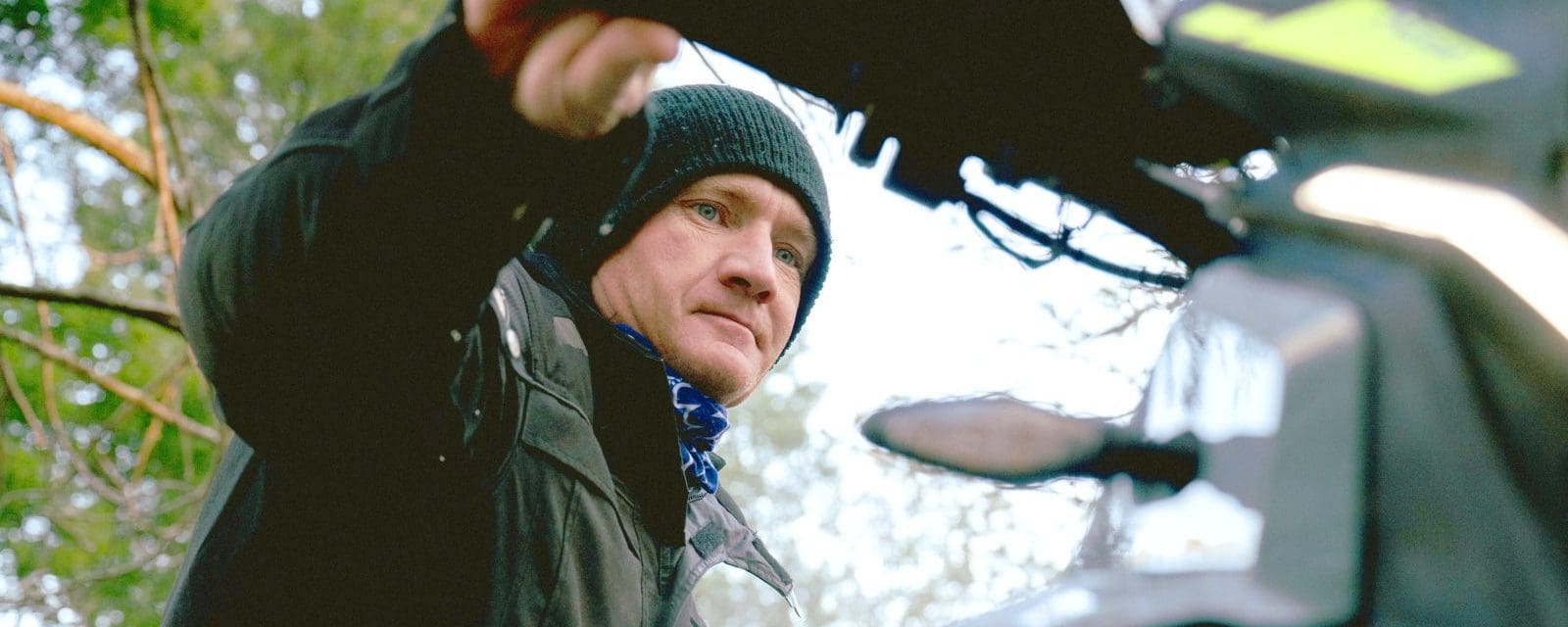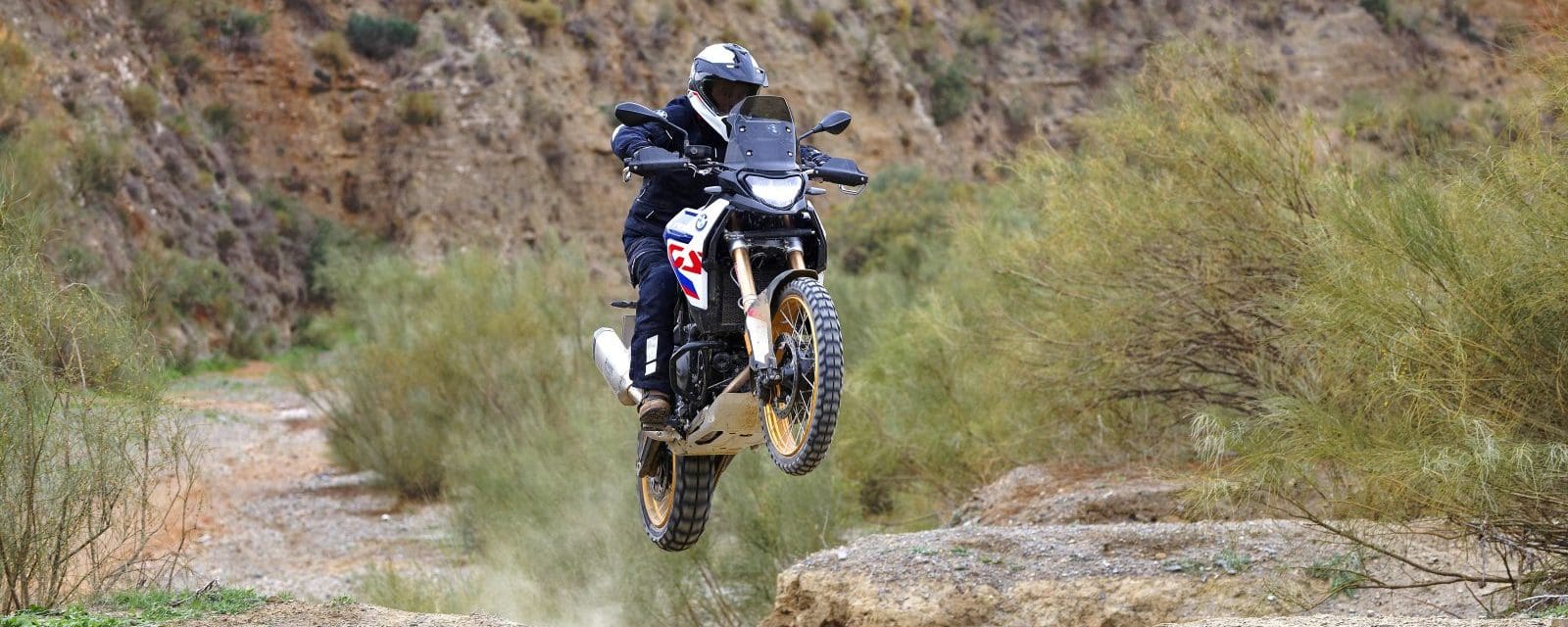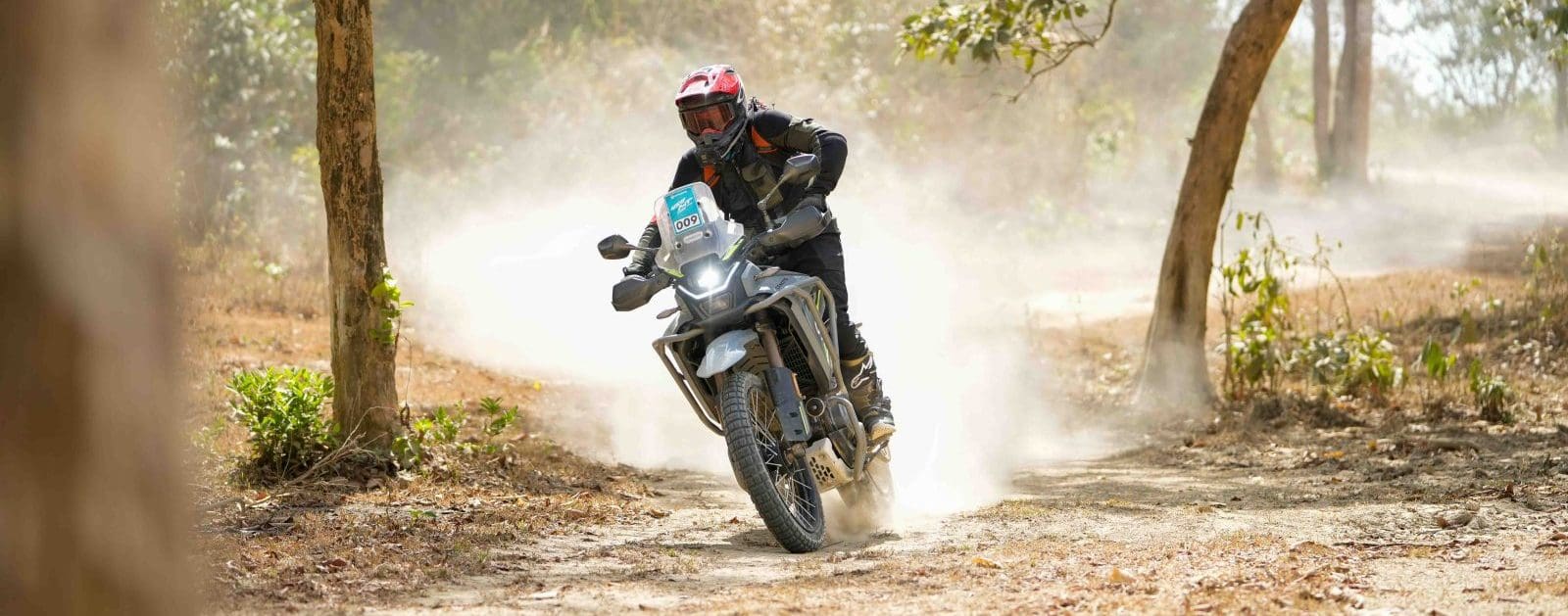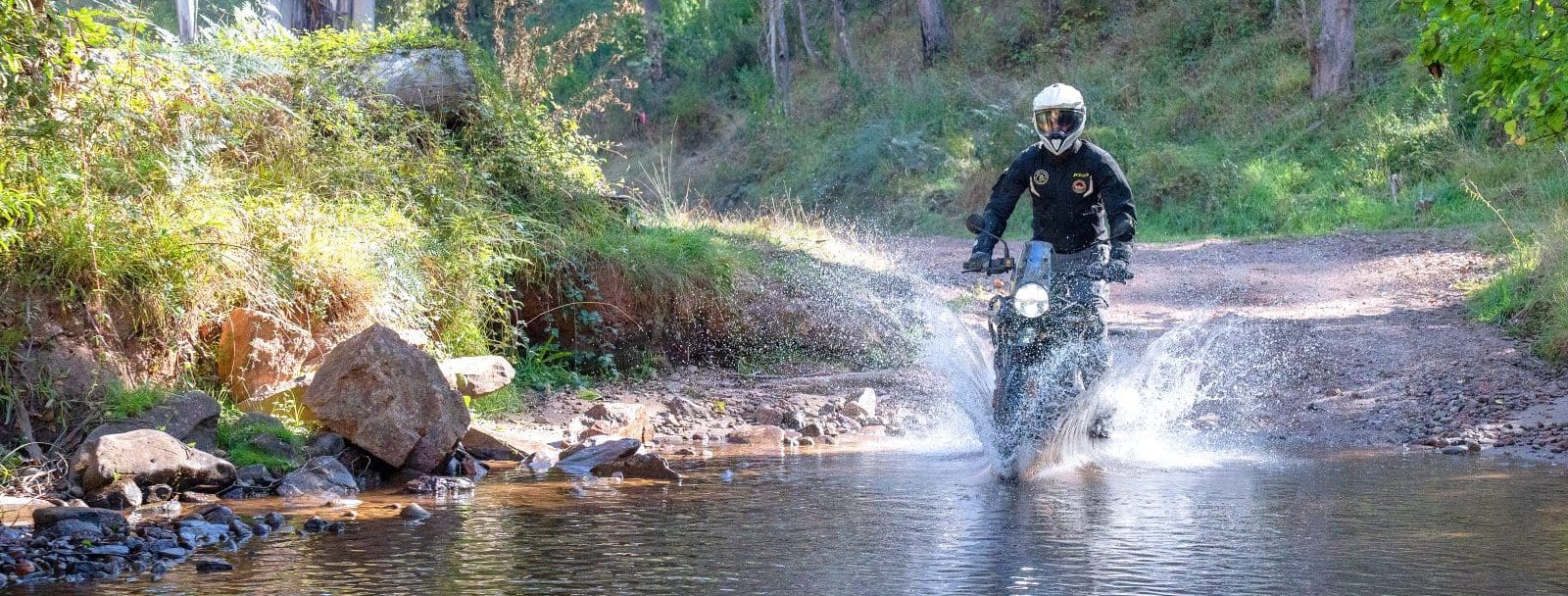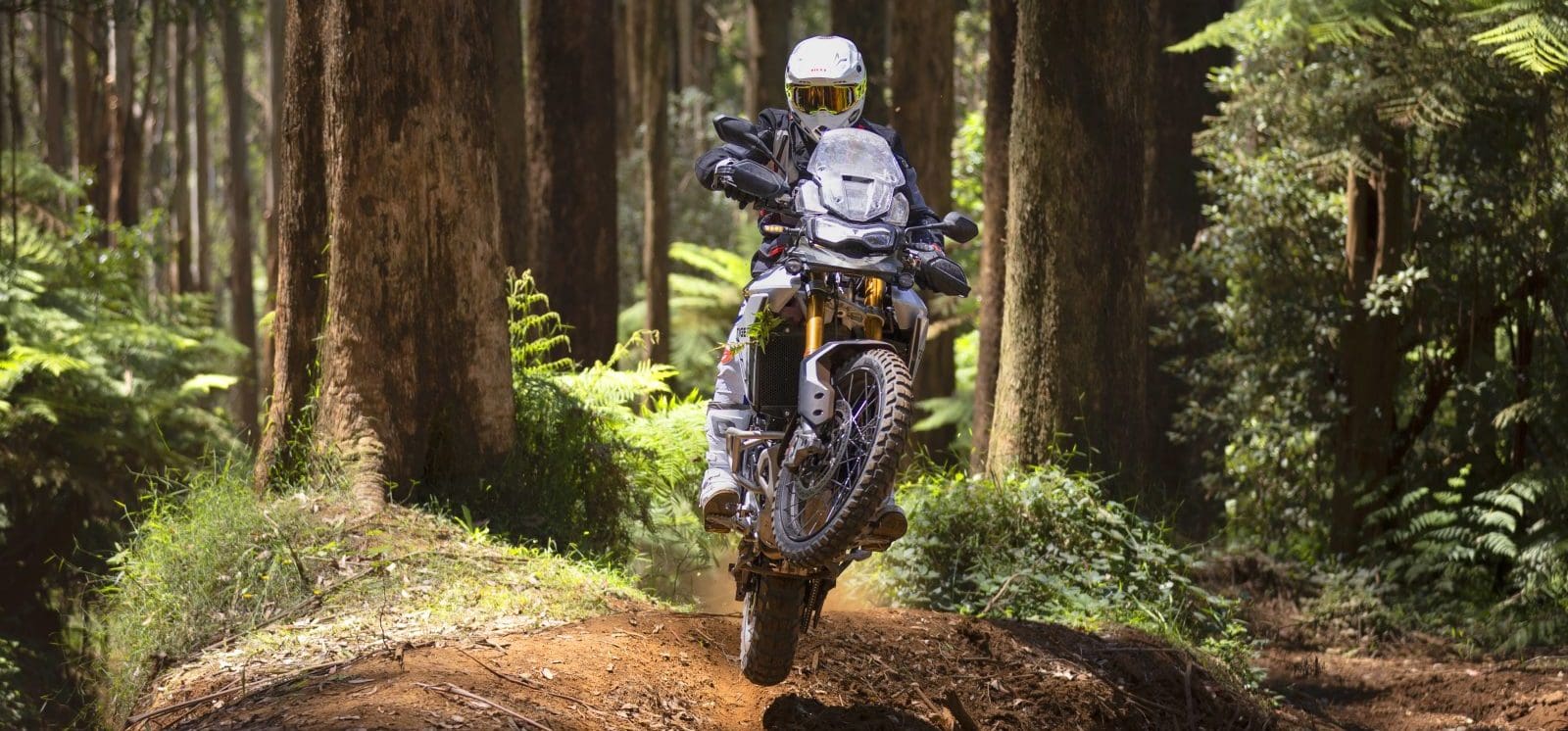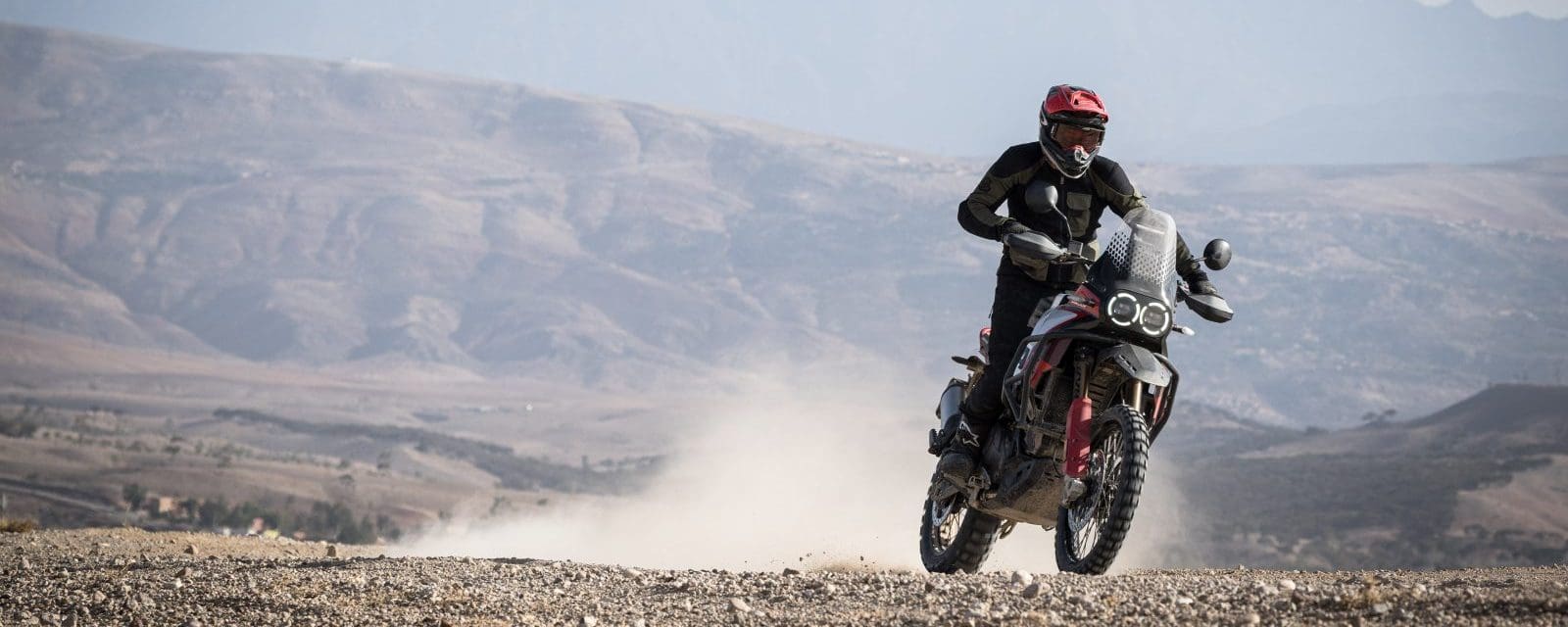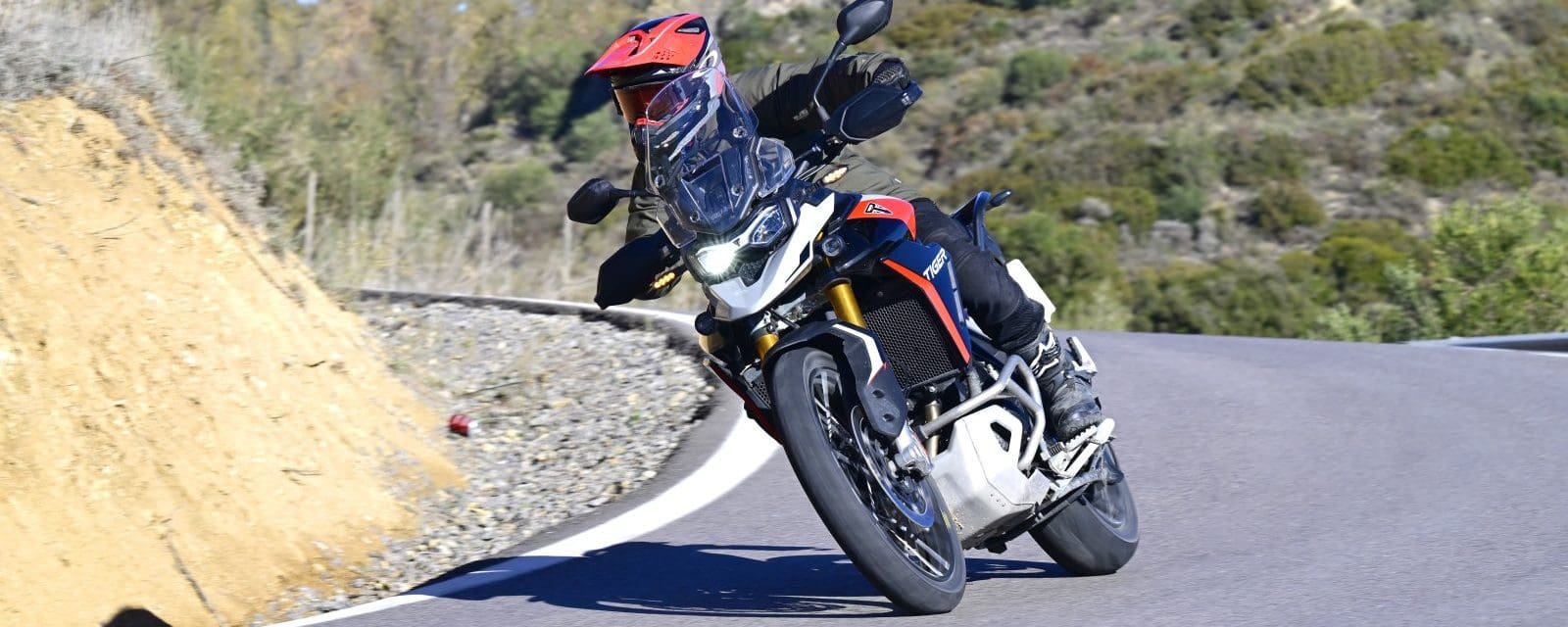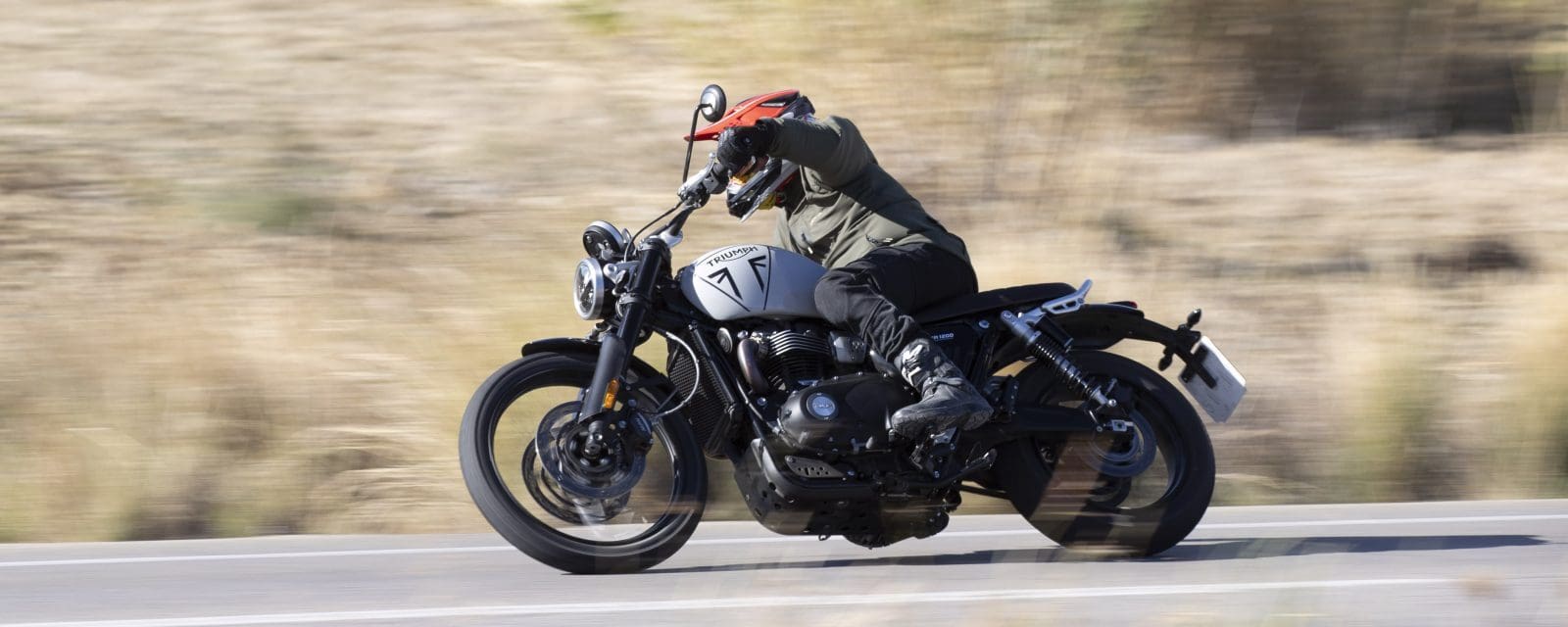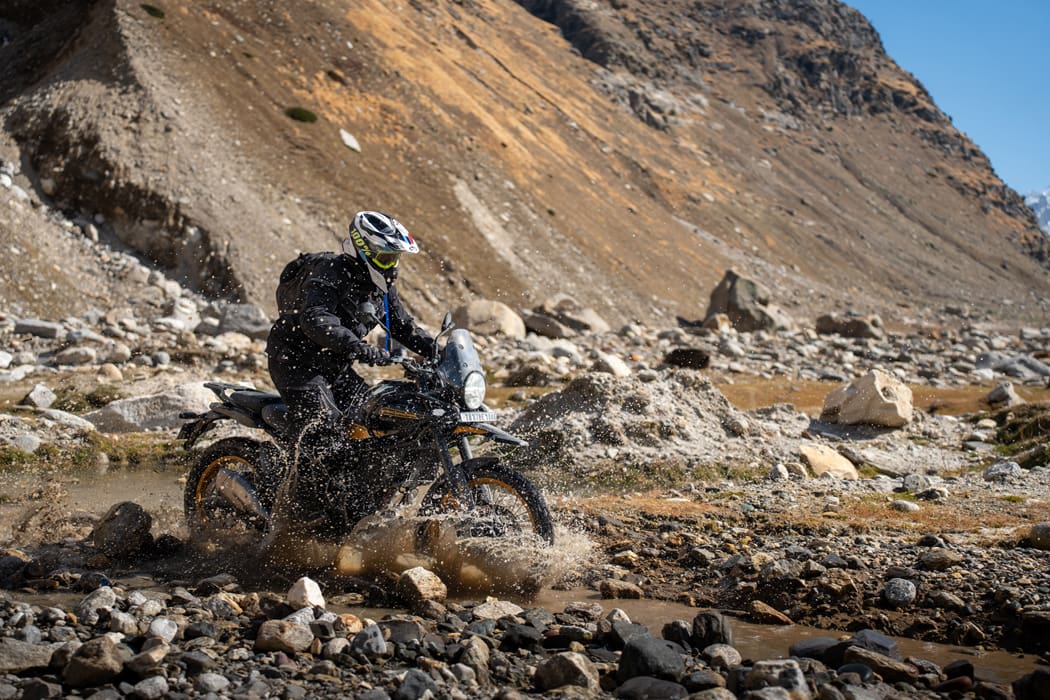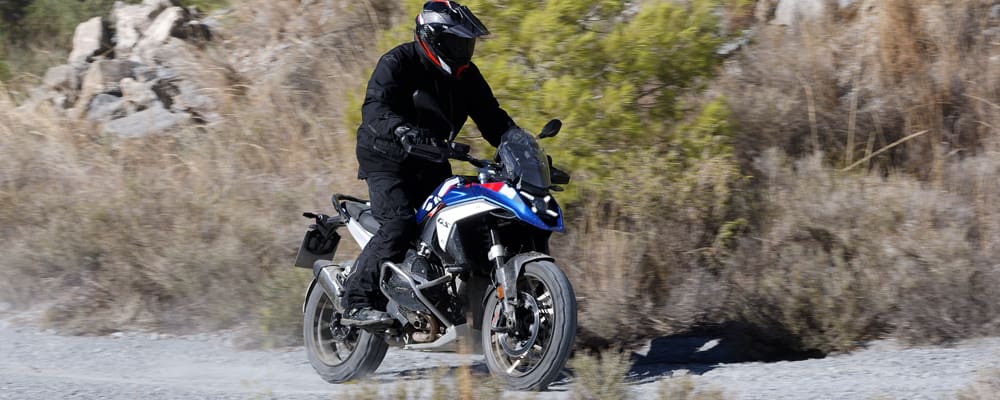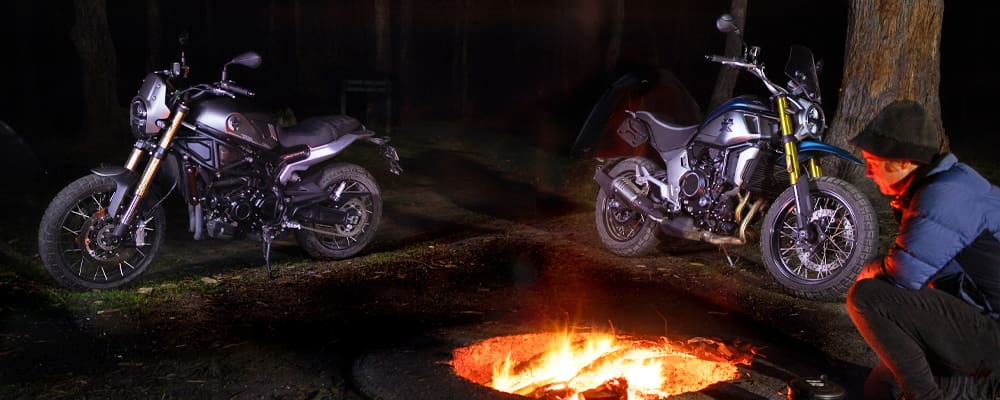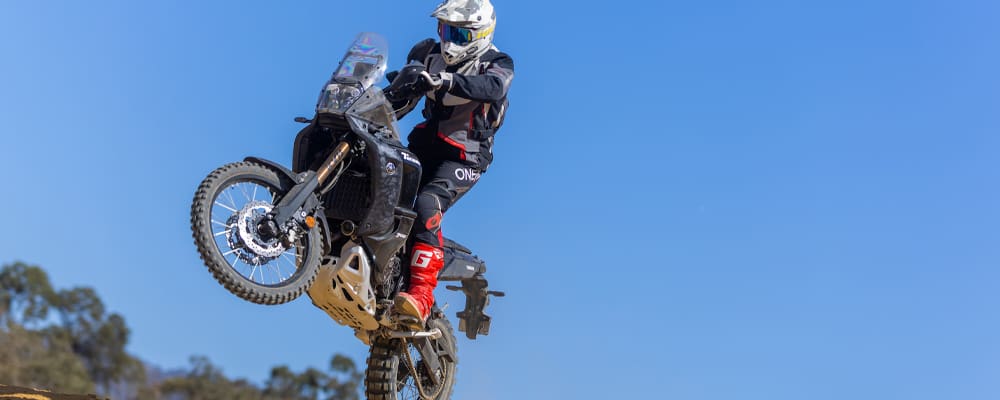Many manufacturers claim they’ve produced a bike able to take on the world. ‘A true global explorer,’ they’ll claim, with ‘no horizon too far.’ And they do so with the aim of taking sales away from BMW’s imperious R 1250 GS Adventure, which has dominated this segment for so long. And while many have come close to the mighty GS, in my opinion none have truly conquered it on every level. At least, perhaps, not until now.
Fact is, Ducati’s all-new Multistrada V4 Rally is as equally capable off-road as it is on it. And anyone who’s piloted a Multistrada V4 over a decent variety of roads will testify that this is quite a statement. Quite a moment in the story of the adventure bike. Sure, the Rally will set you back $41,400 (ride away) but owners will be buying a rather remarkable and clever motorcycle, one that would certainly make me smile every time I open the garage door.
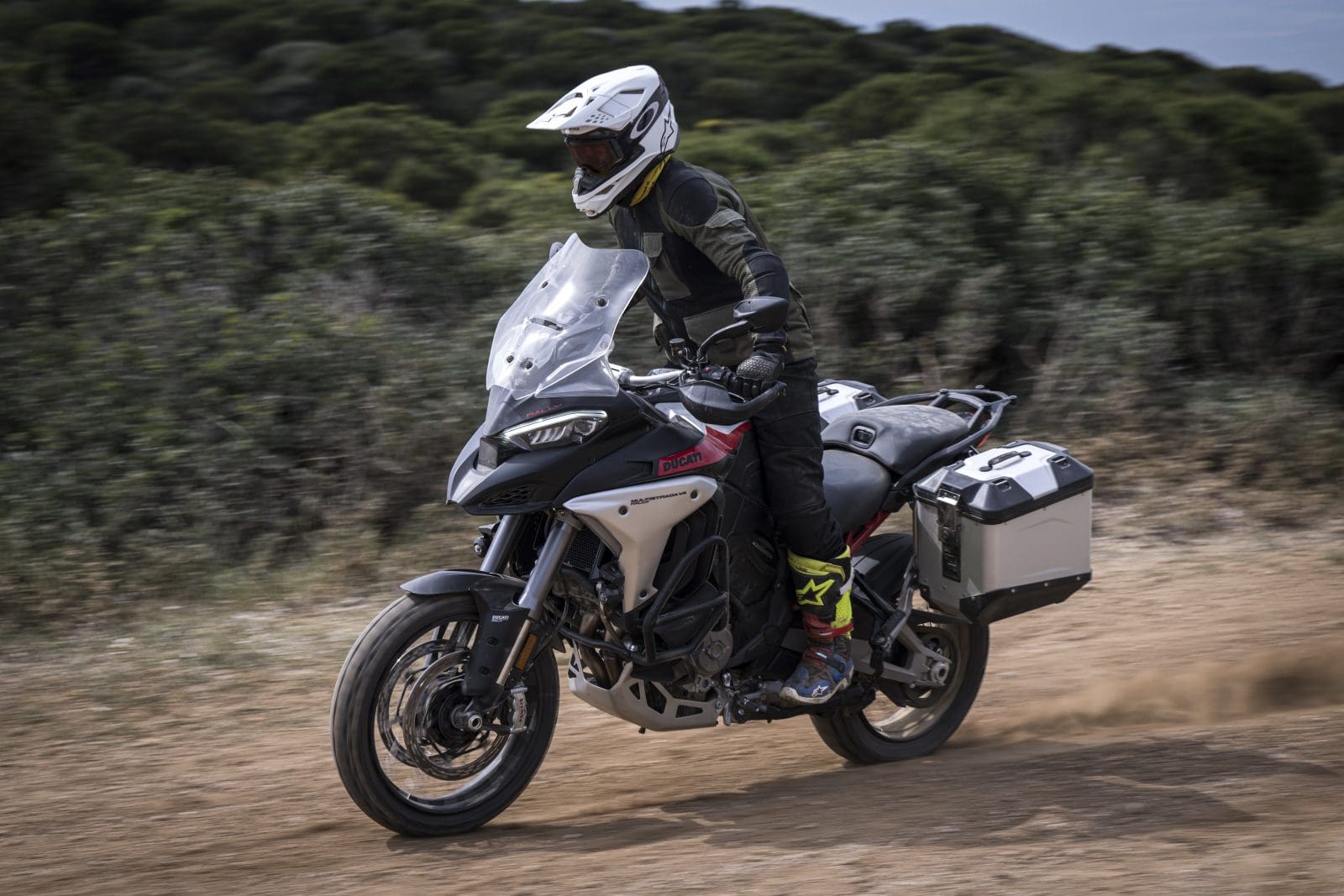
Let’s get the easy bit done first. Ducati has kept the power and torque output of the Rally’s Granturismo engine identical to the more road-focused V4 and V4 S Multistradas, with peaks of 127kW (170hp) at 10,750rpm and 121Nm at 8750rpm. However, it has added the heat-reducing rear cylinder deactivation system seen recently on the new Diavel V4 that cuts the rear pair of cylinders when the bike is stationary or running below 4000rpm (depending on torque request from the rider). The alloy front frame is the same as the standard bike’s, but that is really where the similarities end – and where the Rally begins to move the game forward.
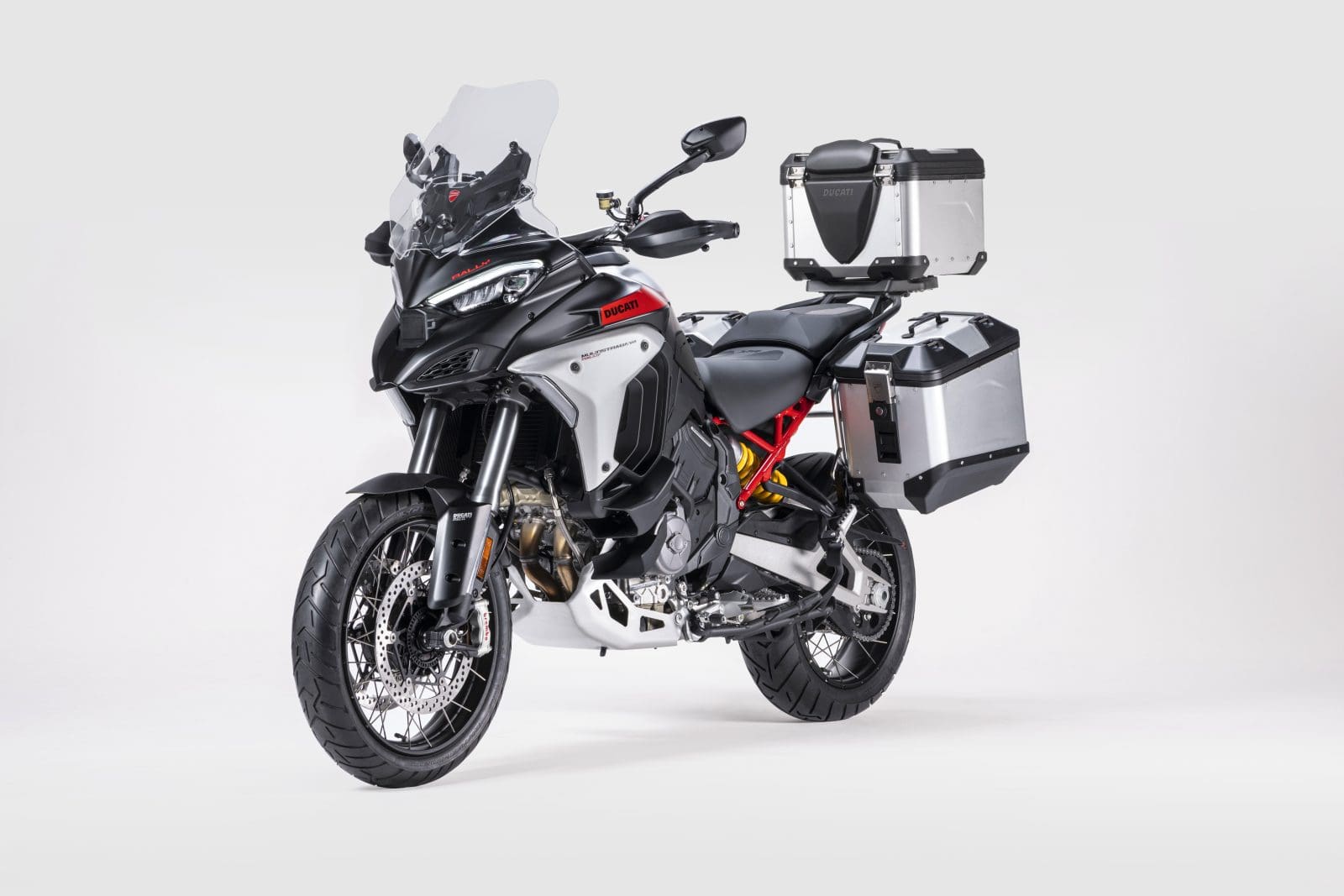
To make the V4 Multi more capable off-road, Ducati has redesigned its extremely clever semi-active Skyhook EVO DDS suspension and added 30mm of stroke to the front fork, and 20mm to the rear shock, giving 200mm of travel at both ends. This increases ground clearance by 15mm to 235mm and, before anyone starts worrying about the effect on the height of the seat, Ducati has made a range of options for all sizes available.
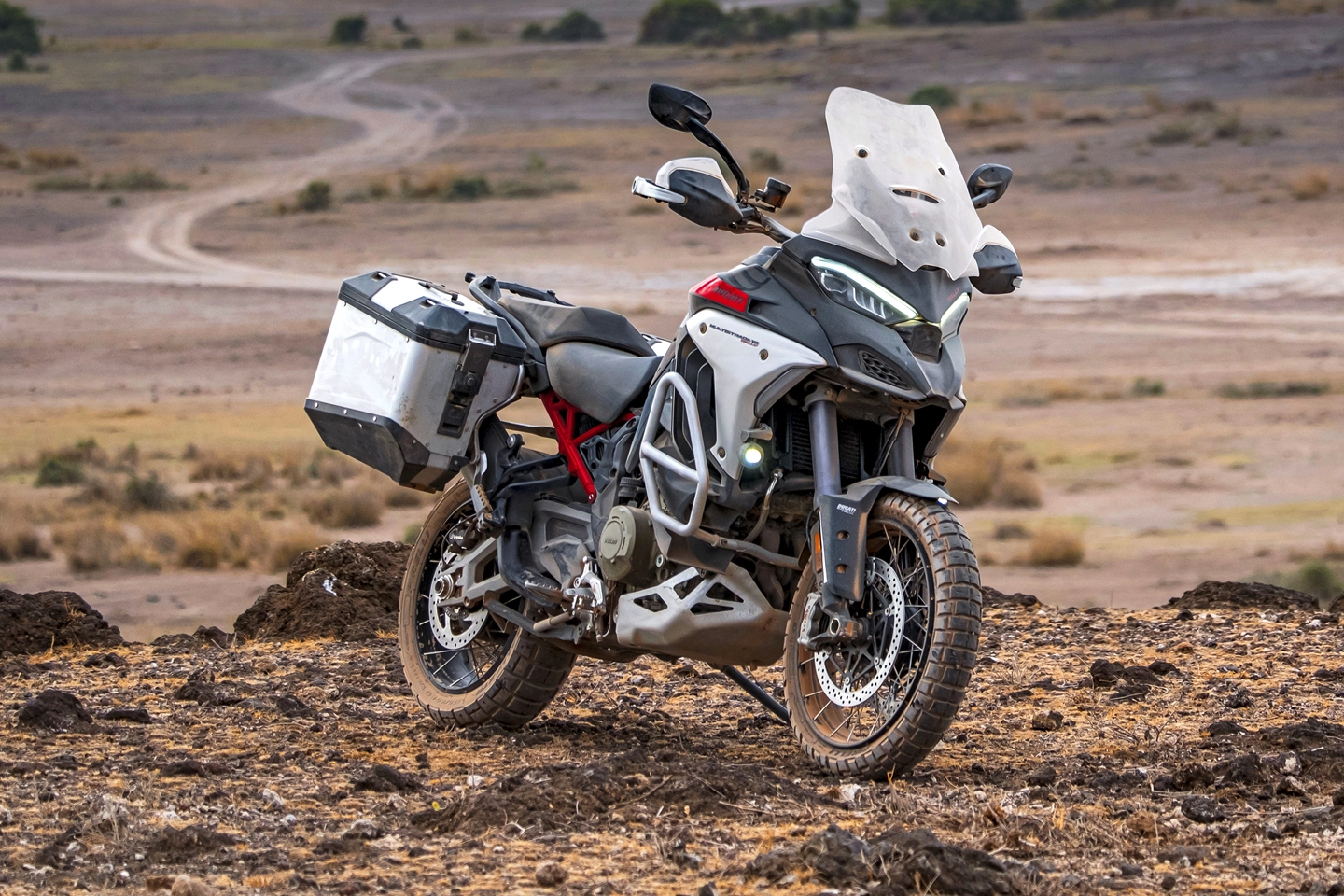
There is also Ducati’s minimum preload system, which electronically removes spring preload, therefore reducing seat height, when you come to stop. Harley-Davison was the first to pioneer this tech on its Pan America. However, you can switch it off, because not all riders are my 170cm stature.
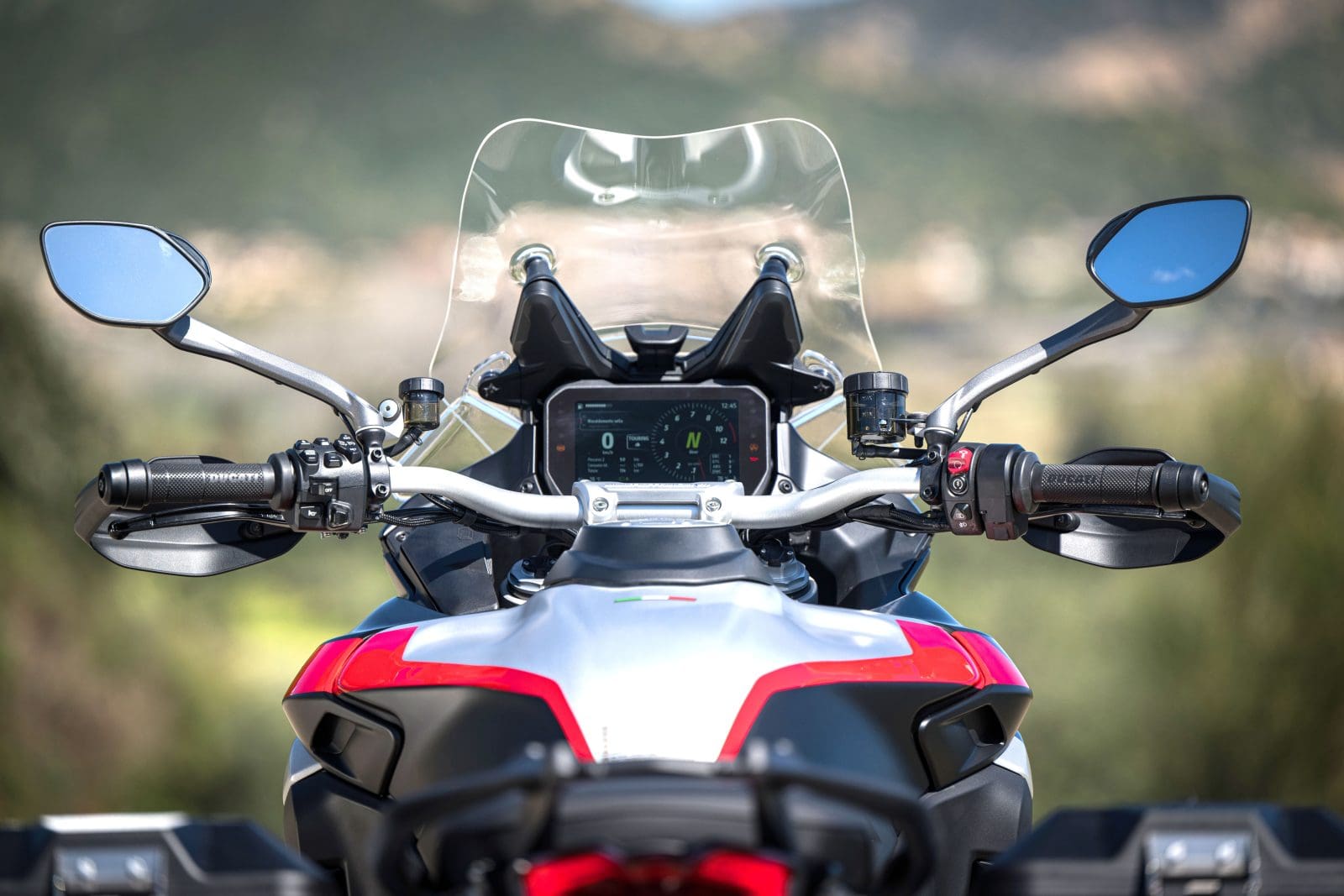
Additionally, there’s an ‘easy lift’ system, which opens up the damping when the bike is switched on, making it easier to lift off the side stand because the suspension is soft.
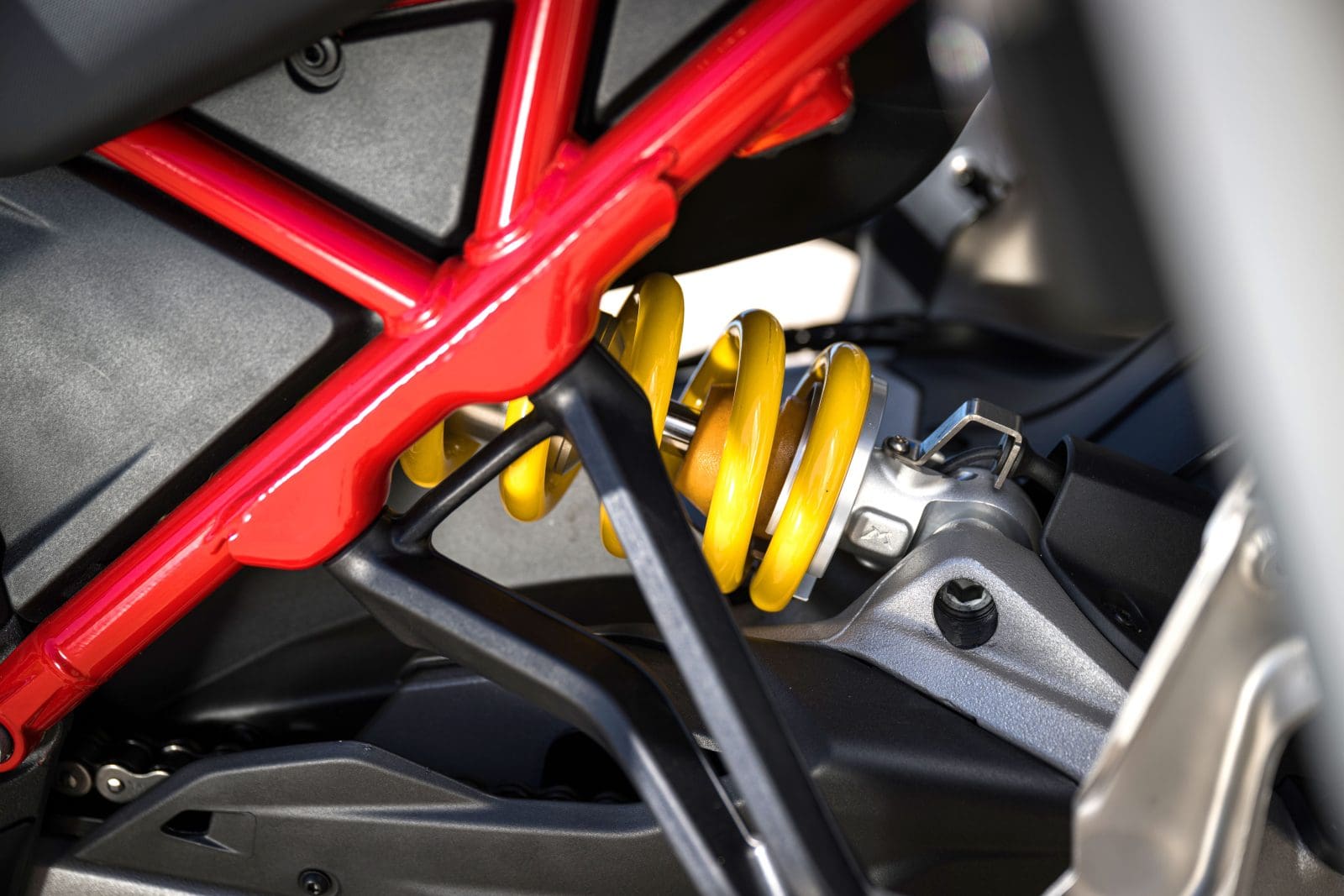
All of it is most welcome technology as far as I’m concerned, as it means I can touch the ground with the standard seat.
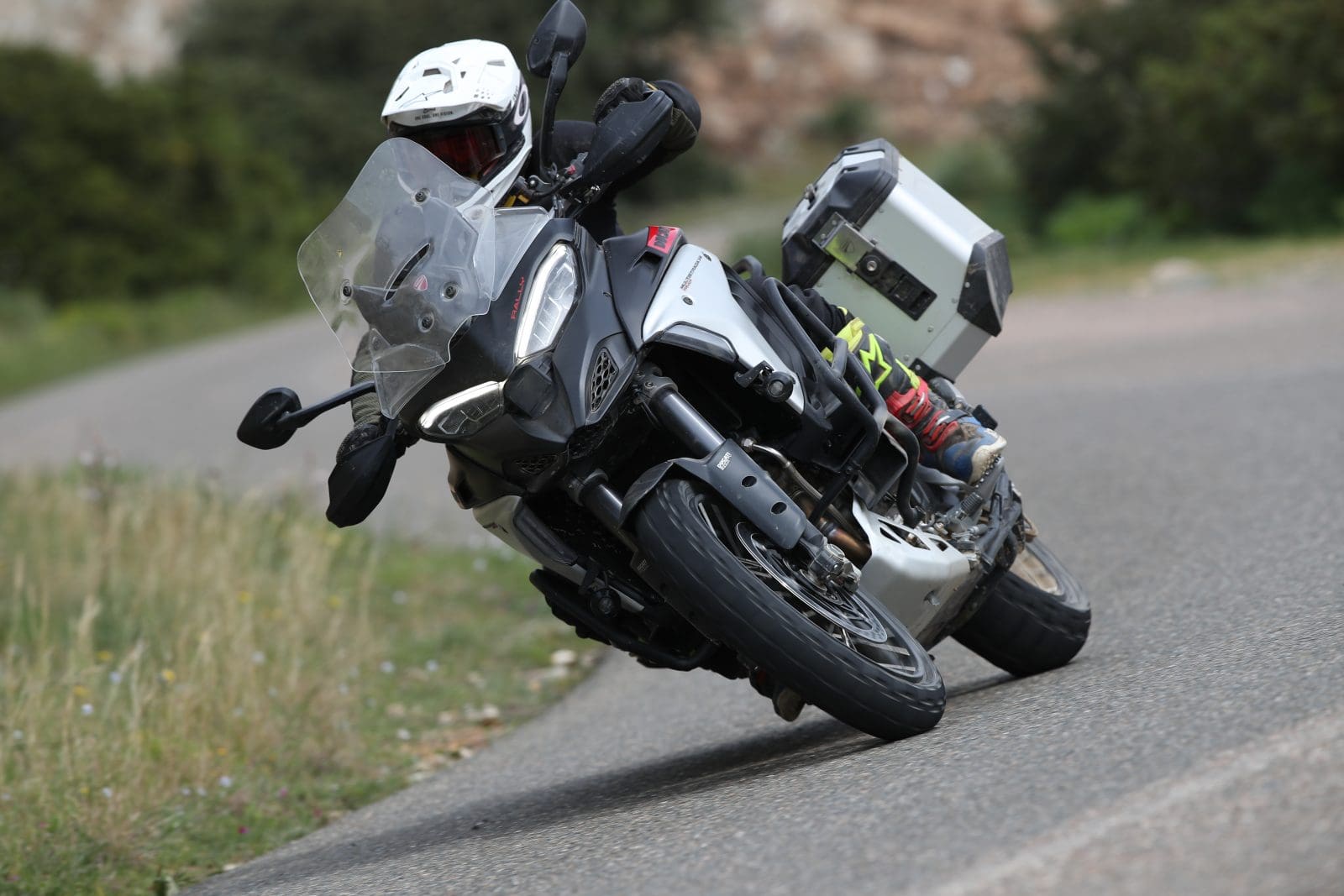
Other new electronics include an Enduro mode and a smoother quickshifter, but the big talking point is the Rally’s focus on comfort, which is based around a larger 30-litre fuel tank that replaces the standard 22-litre item. The manually adjustable screen increases in size (it’s 20mm higher and 20mm wider), and adaptive cruise control now comes as standard fitment, as does blind-spot detection. With a considerably larger tank range, the Rally should be able to rack up big miles and do so without fatiguing its pilot.
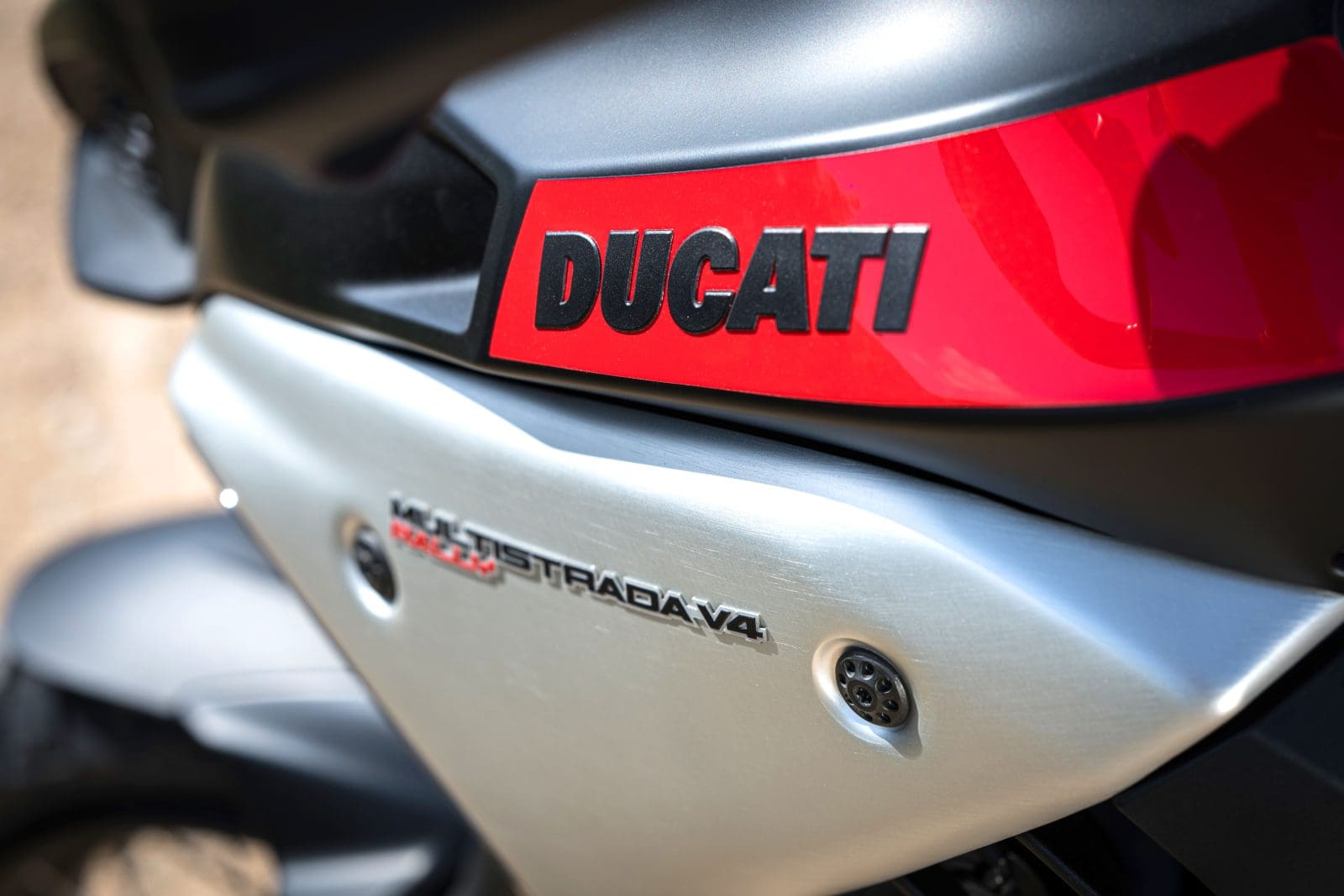
As noted, throwing a leg over the new Rally wasn’t a problem; with the preload electronically removed, I could get both feet on the ground at a standstill. Despite weighing 20kg more than the Multistrada S, as well as the extra mass of our testbike’s hard luggage, crash protection and fog lights, the Rally immediately felt far from big or heavy. I could even flick up the sidestand without the tortured leg stretch required on some adventure machines.
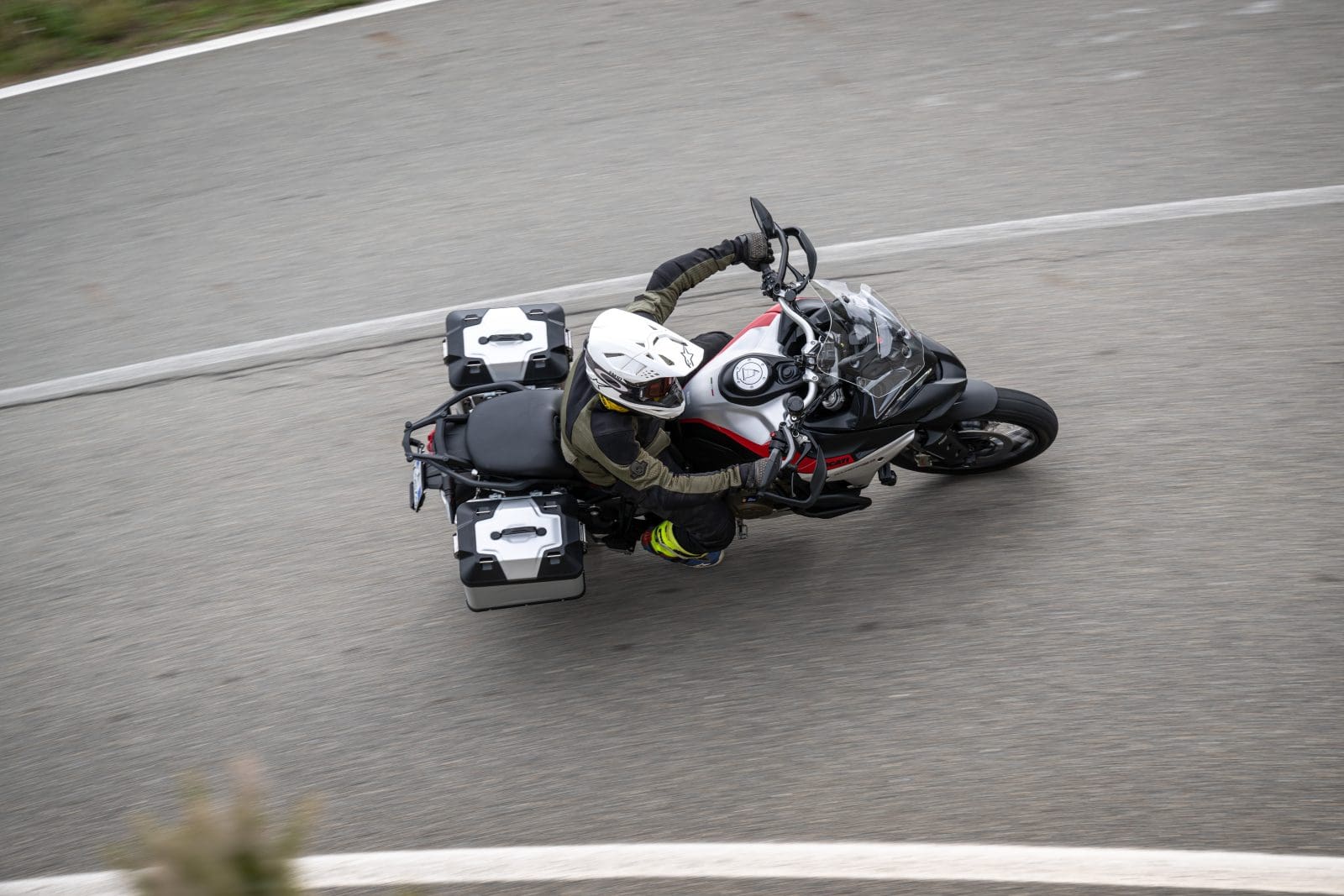
Underway, you are greeted by a widescreen 6.5-inch dash, while an attractive brushed-aluminium finish to the fuel tank oozes quality and class. And again, that sense of lightness prevails.
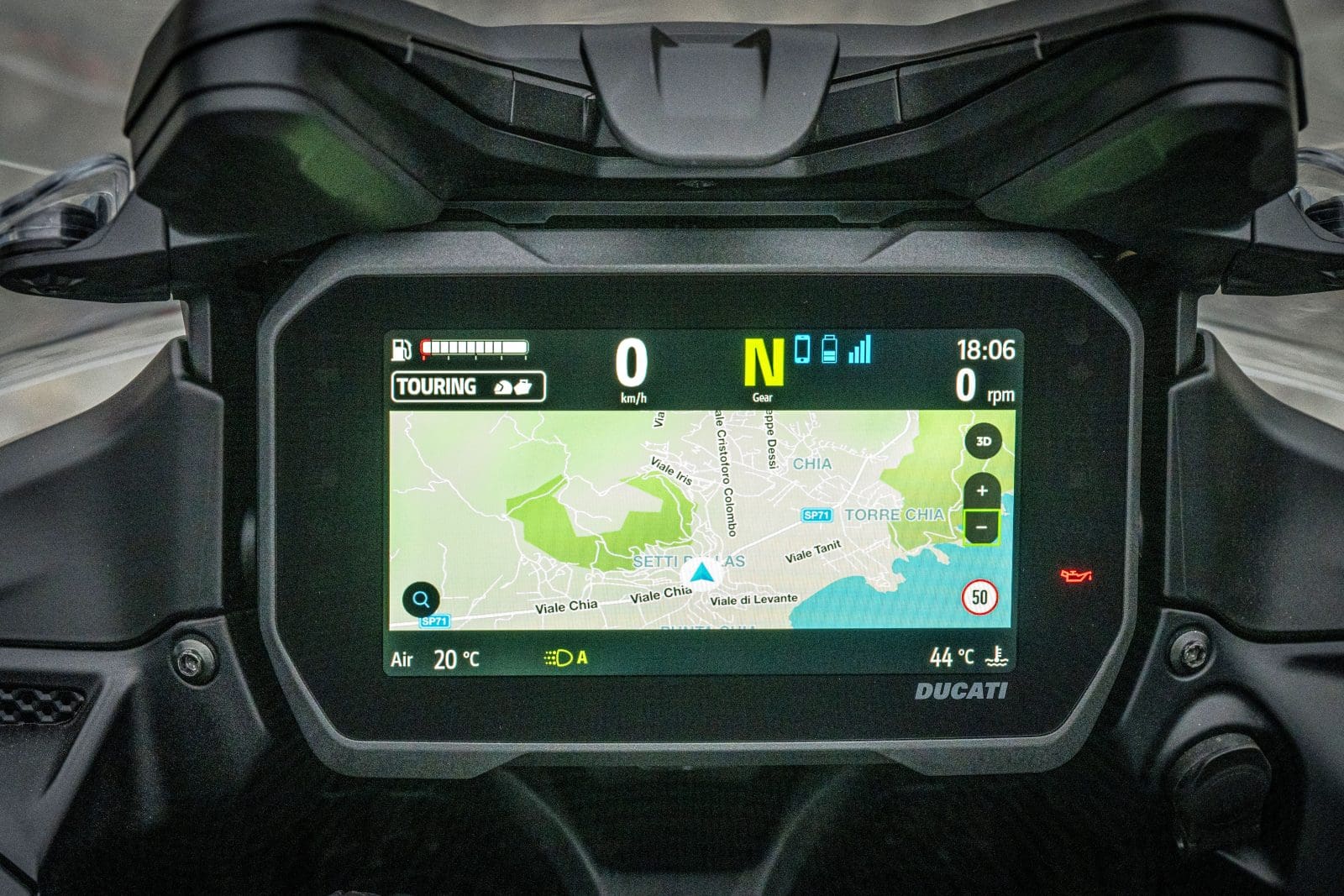
After a few miles of riding twisty coastal roads in Sardinia, I had to double-check the fuel gauge as I was convinced the tank must have been be empty. But no, it was brimmed, so theoretically at least, hauling 30 litres of unleaded. Yet the Rally felt so nimble and steered so effortlessly for a bike in this class it felt more like a sporty middleweight than a global adventure bike.
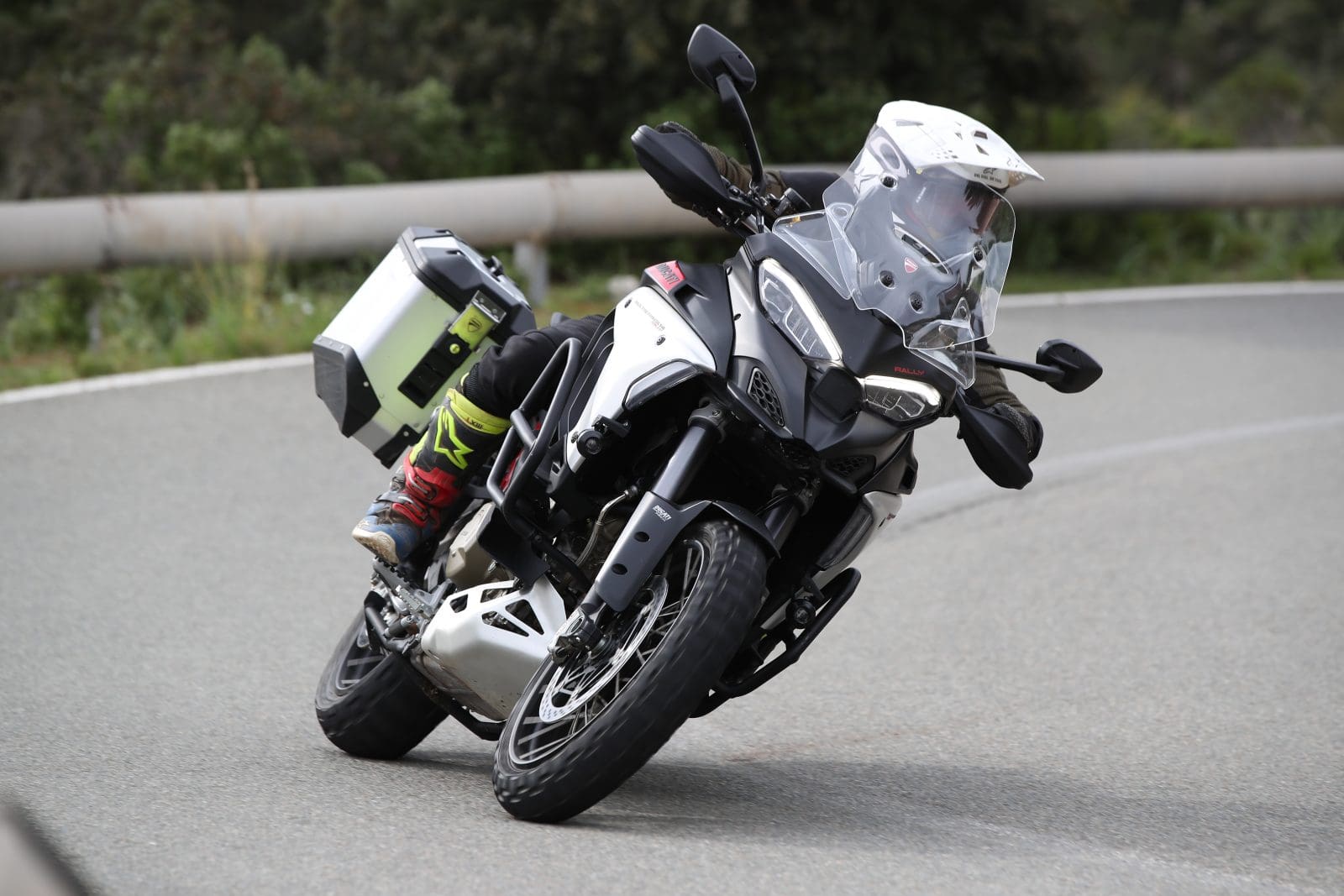
The Rally defaults to a smooth and flowing ride, settles you into a rhythmic and unhurried pace that slows the outside world even when you are, technically speaking, going like the clappers. The Touring mode is optimised for covering ground efficiently, and the one to select when distance really counts.
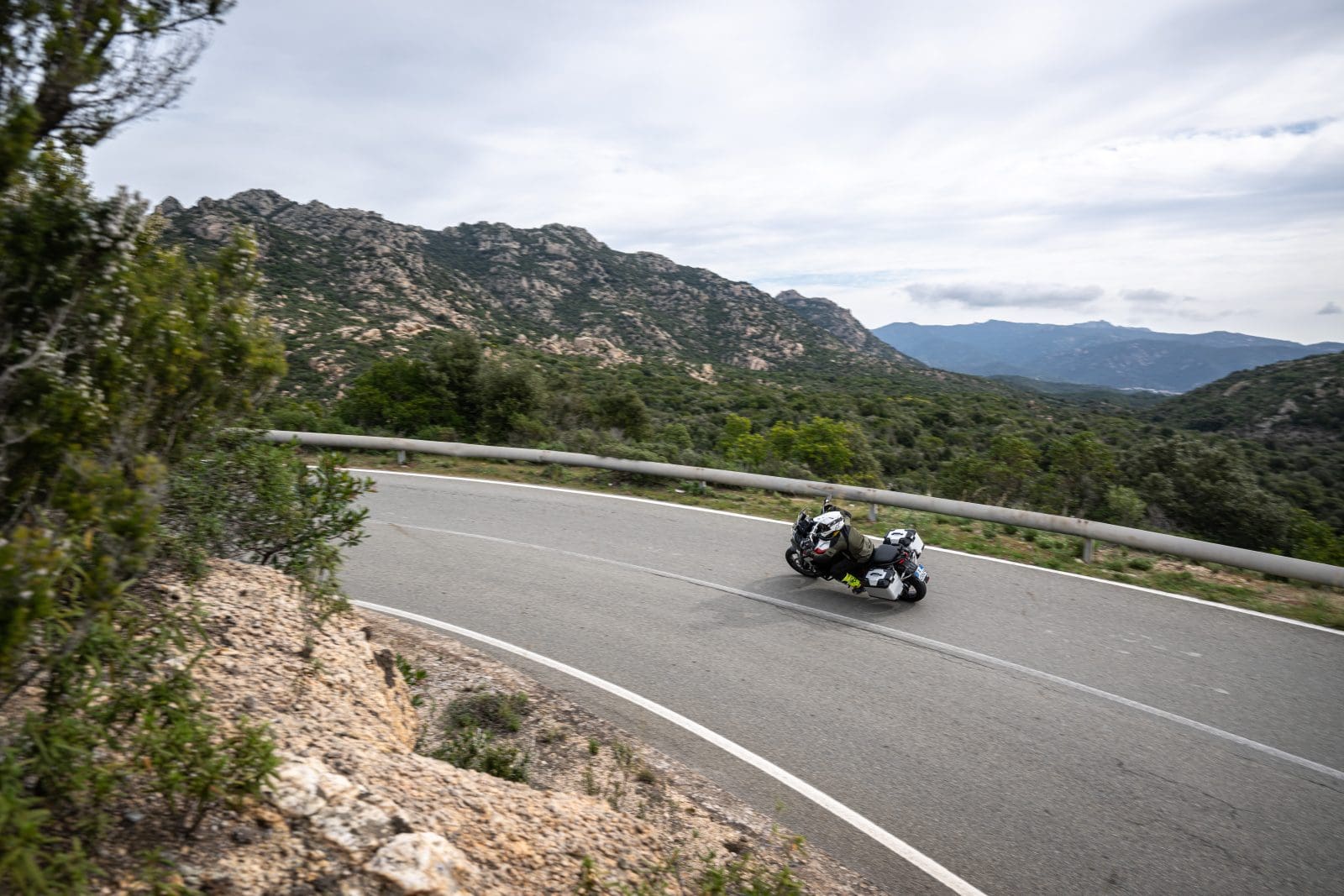
When I upped the pace, I opted for Sport mode, which adds a tauter ride and a sharper edge. The throttle is more direct without being snappy, and the rider aids retreat to allow more spirited inputs and the front wheel to hover an inch or two above the ground over small crests. It’s borderline comical what the Rally can do when it’s in this mode – even a trackday could be on the menu!
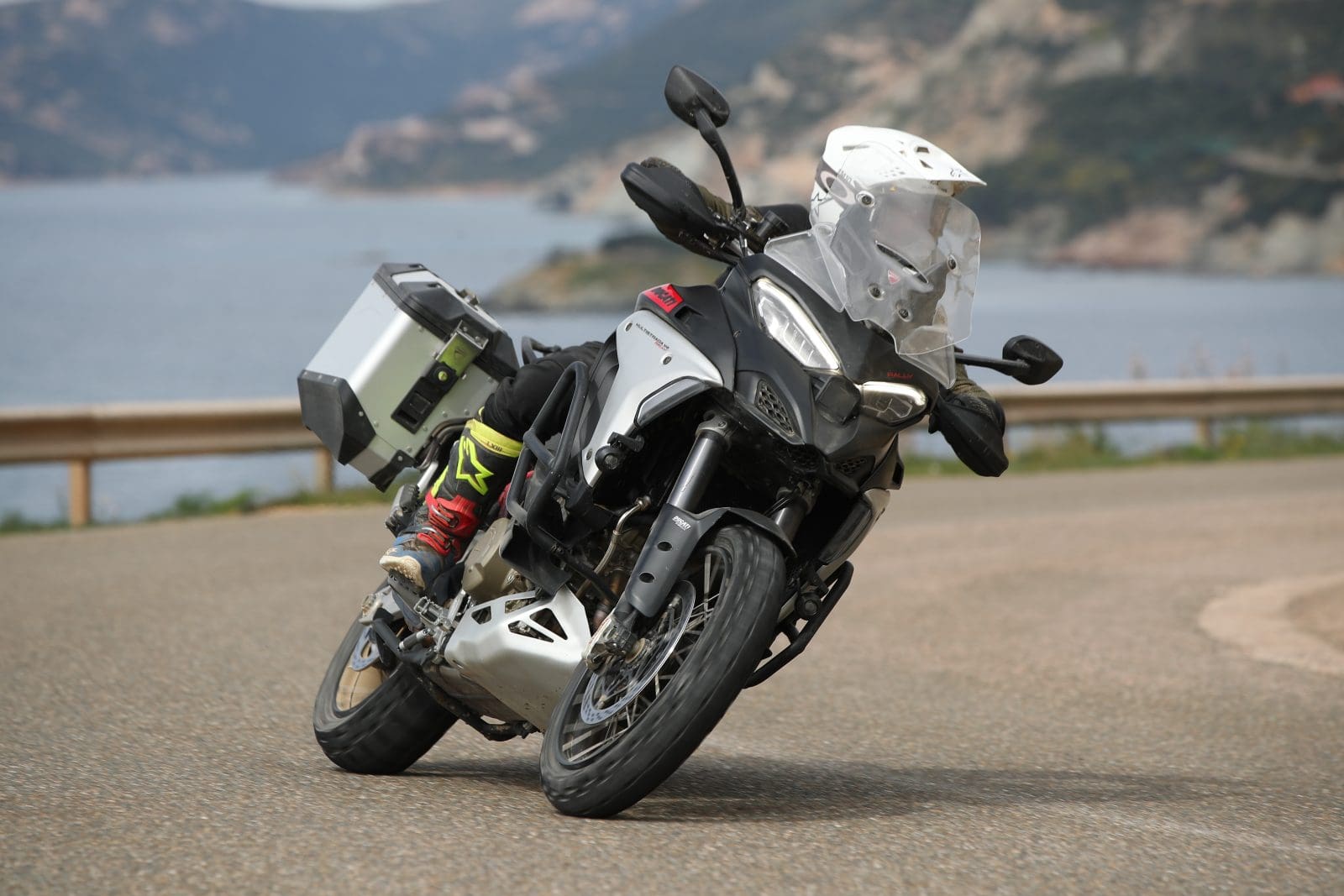
Grip and feedback from the on- and-off road Pirelli Scorpion Rally STR rubber are consistently good on dry roads, even when pushed hard. Ground clearance wasn’t an issue for me (you need to push hard in the softer Touring mode to get anything to touch), while the steering is as accurate as it is light; in long, lingering corners it carried speed like a pure sportsbike and held its line perfectly. It didn’t even care if I braked mid-corner, relying on the excellent lean-sensitive ABS, or jumped on the power early to leave a long black line for others to follow.
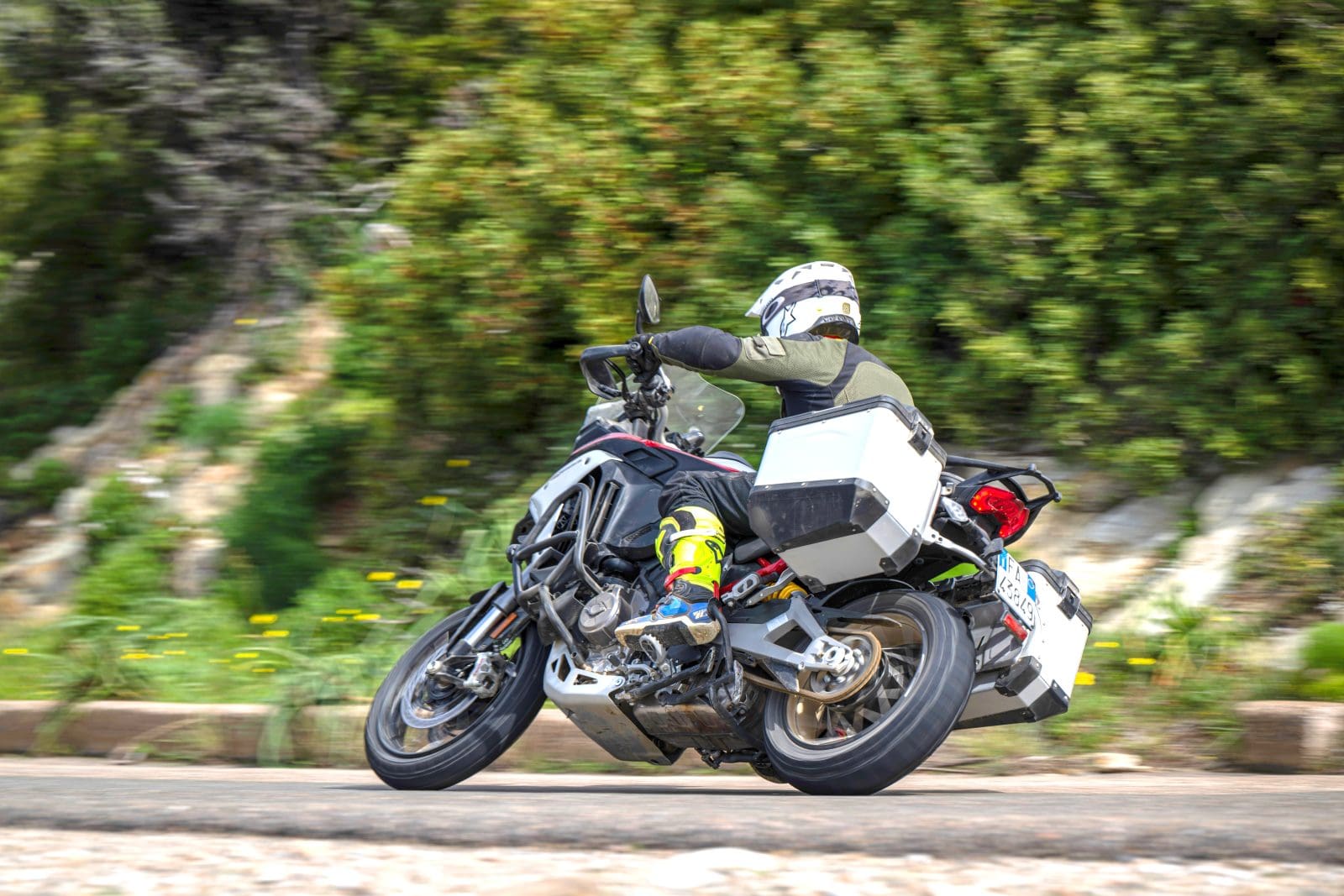
I must admit this was an especially quick ride – Ducati press launches are rarely anything else – and most owners with licences to preserve won’t push the Rally so hard on the public road, but it’s nice to know what it can do. The rider aids are all-enveloping (in a wholly good way) and can easily be trimmed to match your mood and ride. They allow you to relax and focus on the sheer pleasure of riding a motorcycle, behaving like a guardian angel riding pillion.
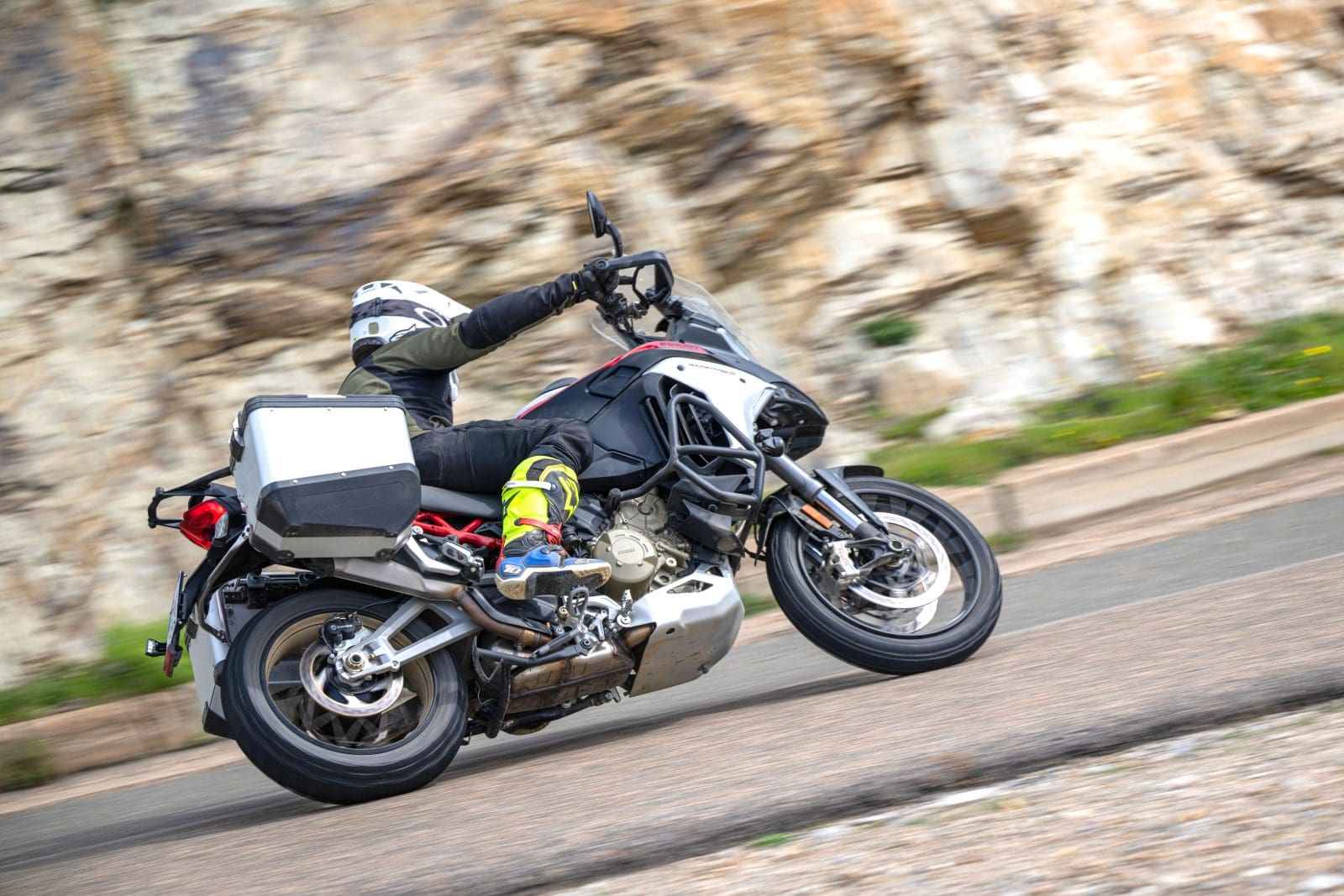
Then there’s the Granturismo V4 itself. At times, especially in Touring or Urban mode, it feels as friendly as Ducati’s entry-level Scrambler: soft, forgiving and perfectly fuelled. Then flick to Sports mode, turn off the Ducati Wheelie Control, and only KTM’s big 1290 Adventure can run close with the Rally in the performance stakes.
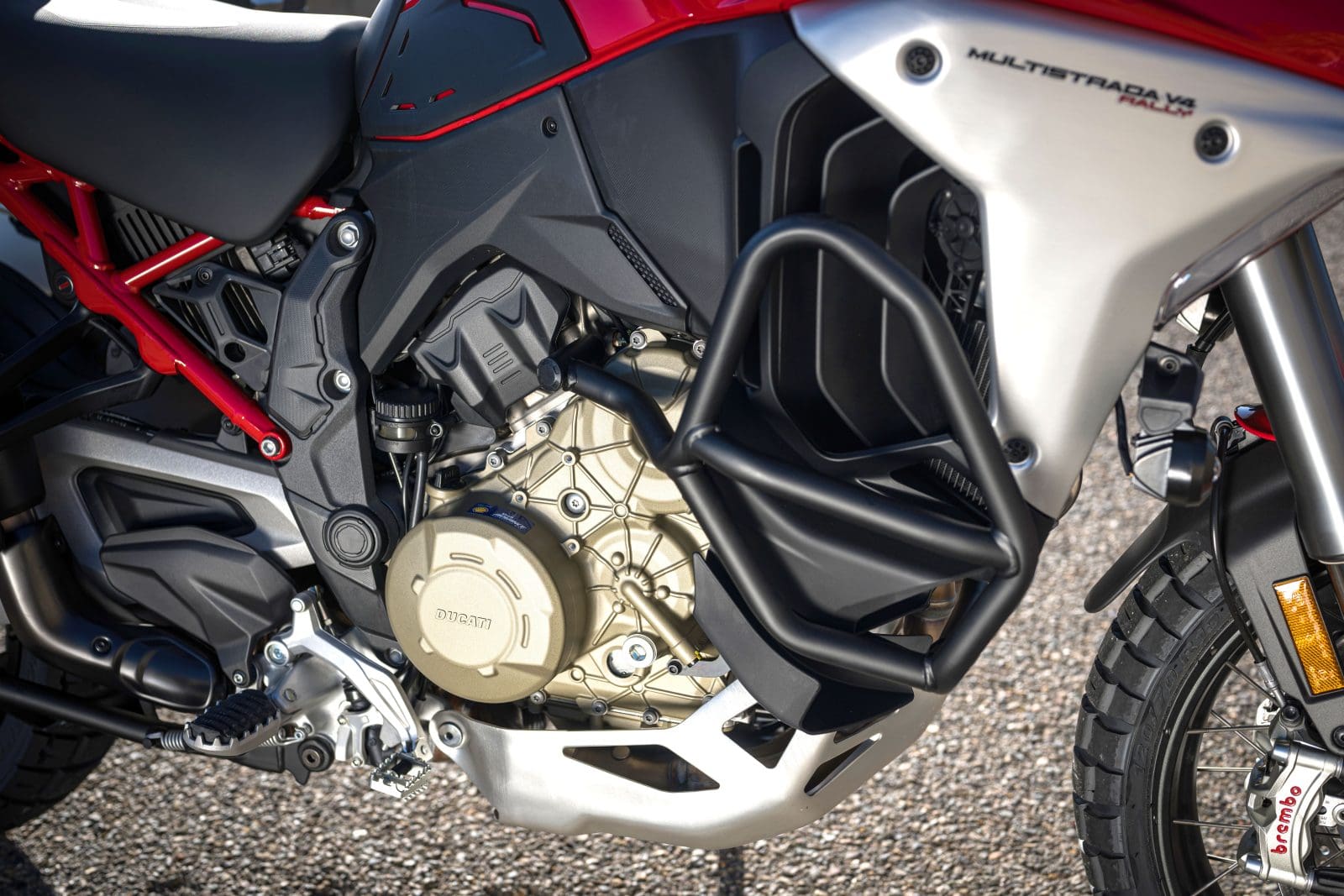
The route for this test mainly followed switchback coastal roads, but on the odd occasion when the road opened up the 124kW (170hp) V4 hardened and drove the bike forward in a way Multistrada owners have come to love. Even when you add a pillion and luggage, it’s a mighty strong engine. Fast overtakes can be executed on only a whiff of the throttle…
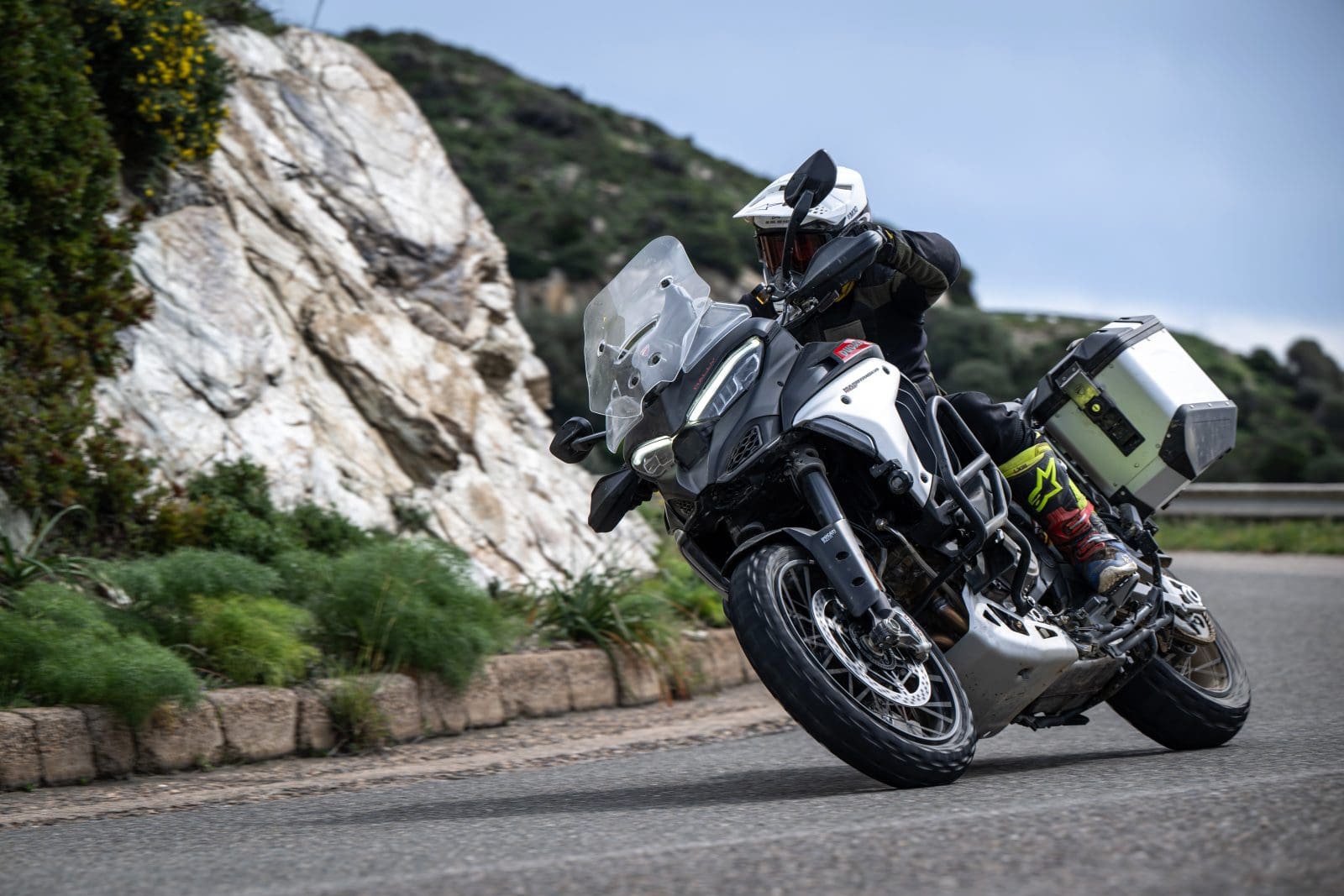
Ducati has stayed with the 19-inch front and 17-inch rear wheel sizes for the Rally, but opted for spoked rims over the more road-biased alloys on the V4 and V4 S. If you want more off-road ability then you can opt for Ducati’s DesertX, with longer travel suspension and a 21-inch front wheel.
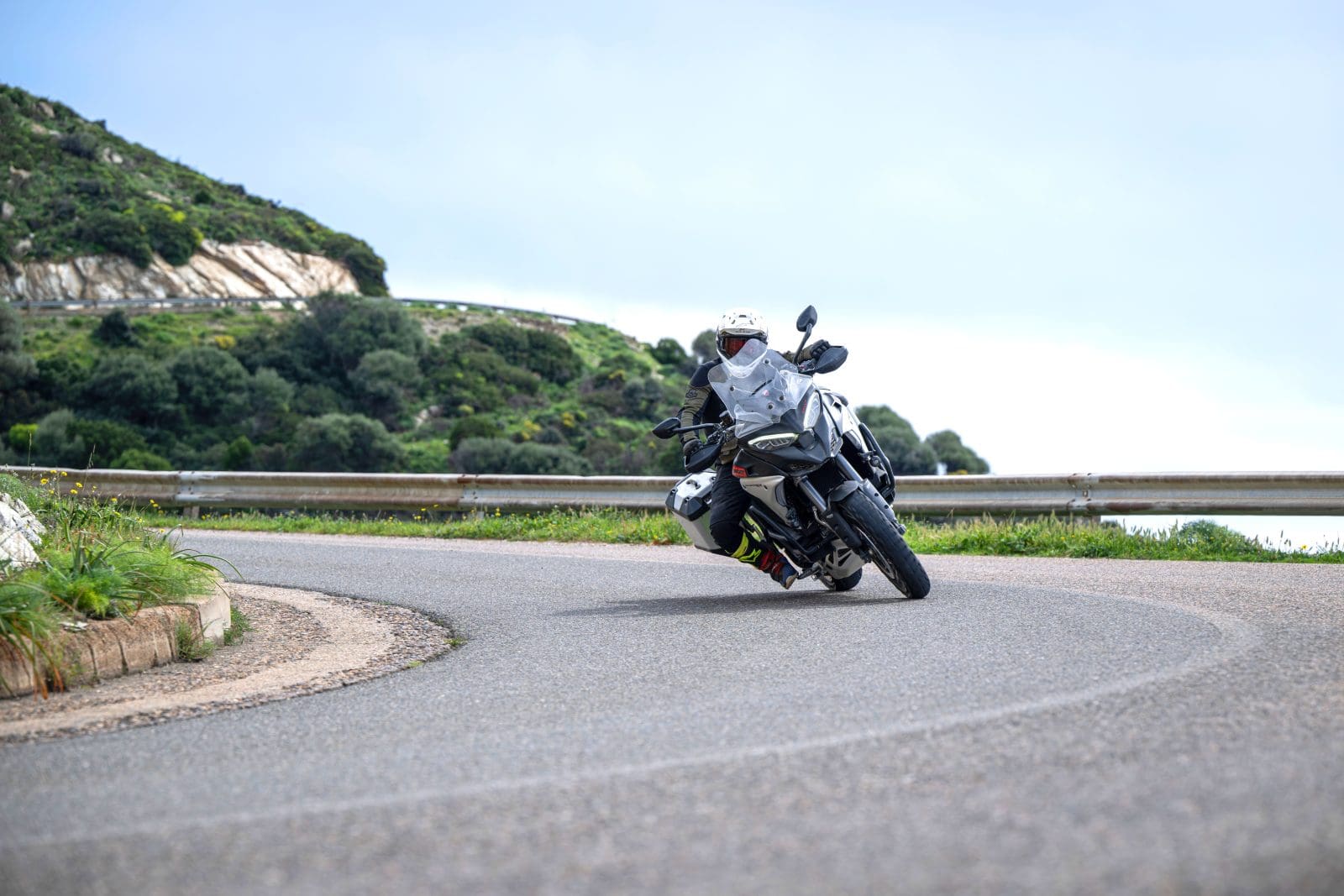
Overall weight has increased to 240kg (wet, with no fuel), and the larger tank has increased the bike’s width a fraction as well – but the Rally is just as impressive off-road as it is on. In the metal it looks too bulky, too big and too heavy to be any good in the back end of nowhere but its looks and on-paper spec are totally deceptive.
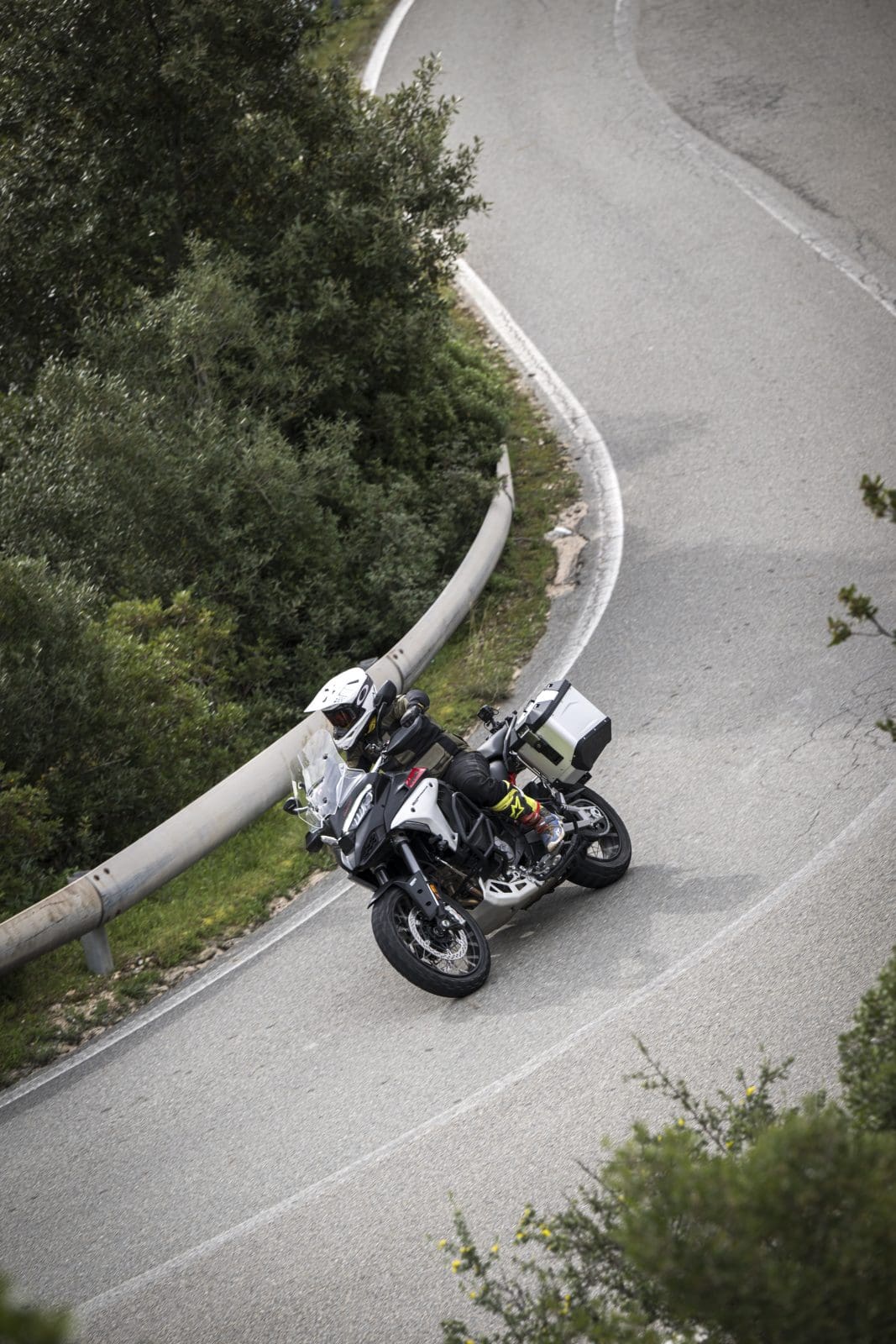
Turn onto the dirt, switch into Enduro mode, and that apparent lightness once more comes to the fore. Okay, it’s not a middleweight KTM 890 Adventure R, and there are limitations but, with the optional Pirelli Scorpion Rally STR rubber fitted, I was amazed by its calm off-road manners.
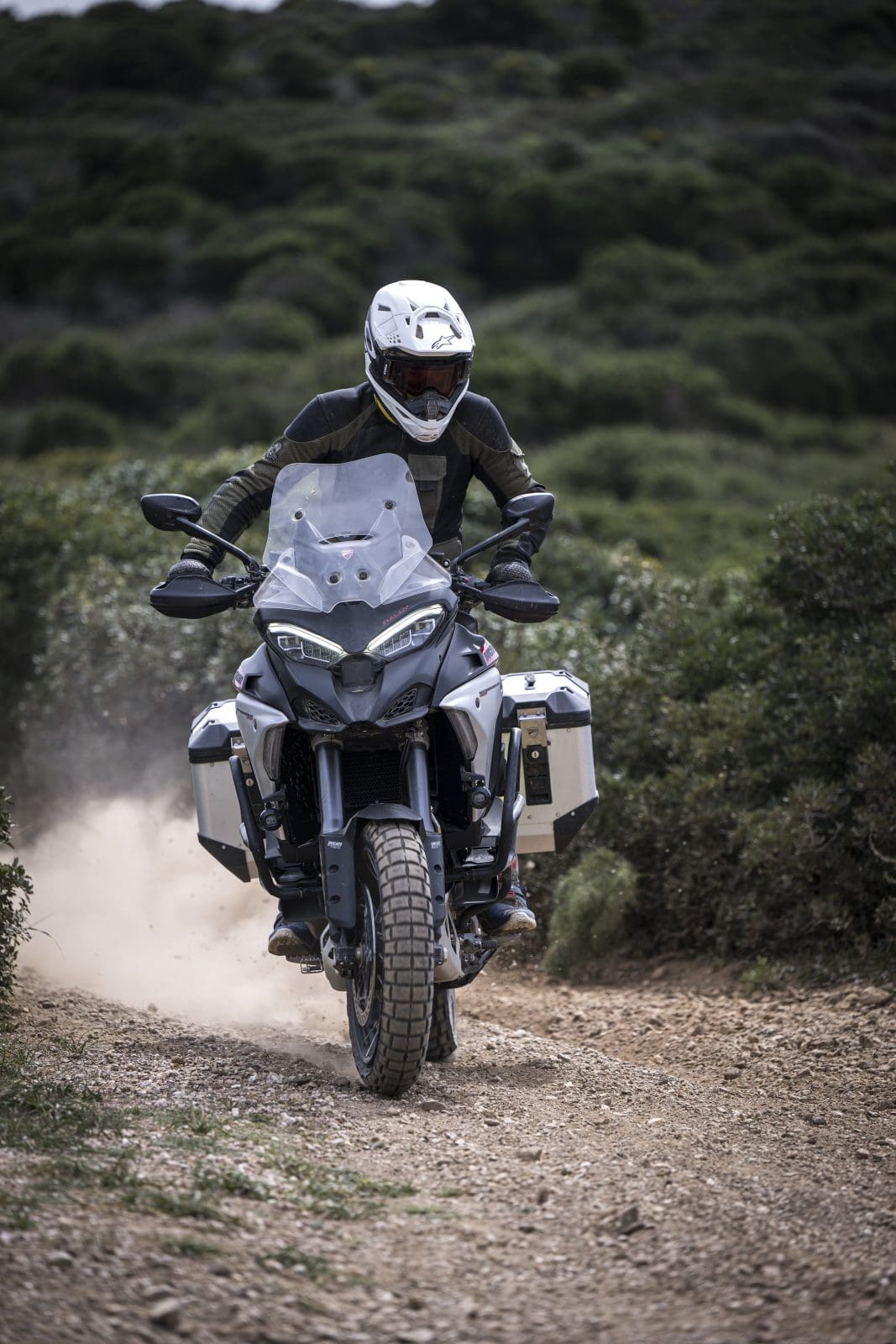
As the going gets tougher the tall and slightly intimidating dimensions of the Rally seem to shrink. Peak power is capped at 85kW (114hp) and the throttle delivers instant torque without ever feeling too sharp. Meanwhile, the off-road rider aids, especially the ABS, work seamlessly to help you find grip. You can flip over the rear brake lever to give more direct feel when standing up, remove the rubbers on the ’pegs and lower the screen. It all gels.
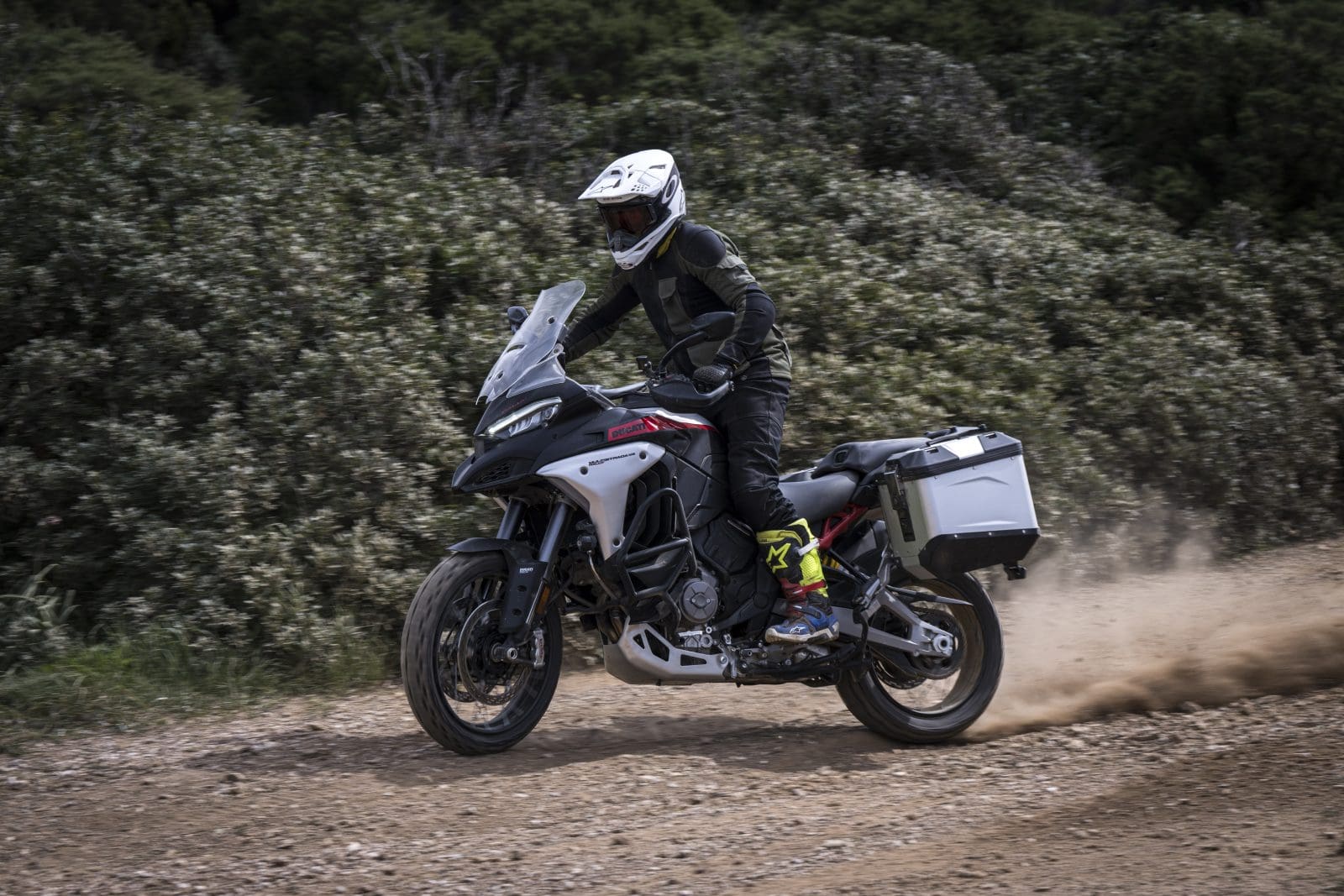
I’m a reasonably experienced off-roader but no expert, and throughout the day found my confidence building as my connection with the Rally grew stronger. You do have to remain aware of the wide (fixed) panniers and potentially damaging bushes and stone walls, while the front wheel can sometimes understeer on gravelly surfaces, but mainly the Rally encouraged me to mess around as if I were on a far smaller machine, and even to try the odd jump. When I stopped I could electronically lower the rear ride height by removing the spring preload, so never had to worry about dropping the Rally on an uneven surface.
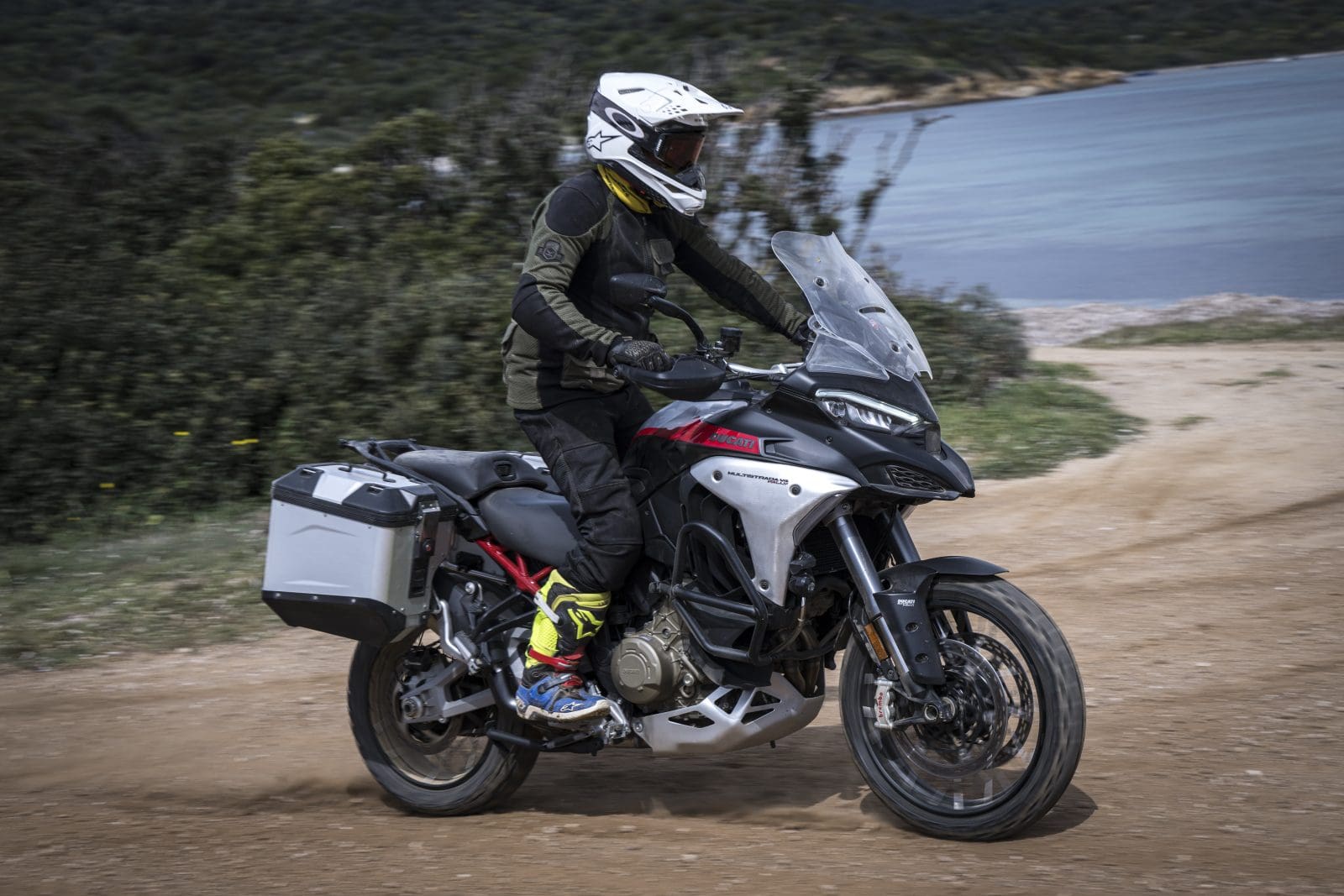
AMCN got the opportunity to ride the Rally on- and off-road for a total of 200km and it scored superbly in all areas. However, we didn’t get the opportunity to try any long-distance freeway miles, though I have ridden the V4 S over long distances and know the adaptive cruise control and blind-spot detection systems are useful and effective. Ducati reckons the Rally uses petrol at 6.6L/100km, so in theory you’ll be able to cover more than 450km before the 30-litre tank runs itself dry.
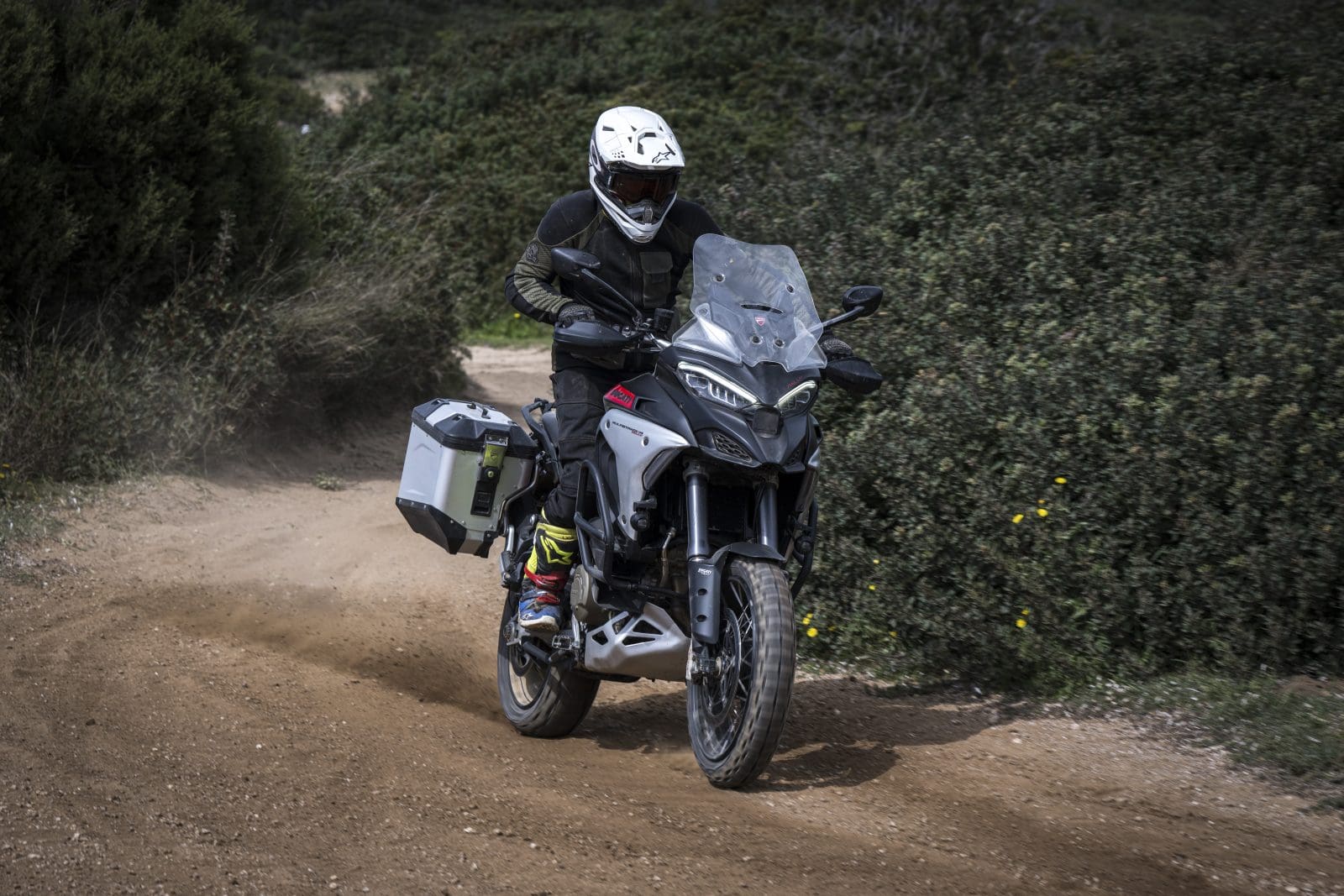
As first impressions go, however, I can’t praise the Multistrada V4 Rally enough. It’s not often you run out of superlatives for a bike. I should add that it’s a stunning machine up close, one peppered with lovely details and finished with the highest quality. I guess the big question is whether you would be happy to take $41,400 worth of machine off-road. In fact, the model we tested, complete with panniers, crash bars and auxiliary LED lights, is priced at a cool $47,154. Add a few more extras and you can easily push $50k and more.
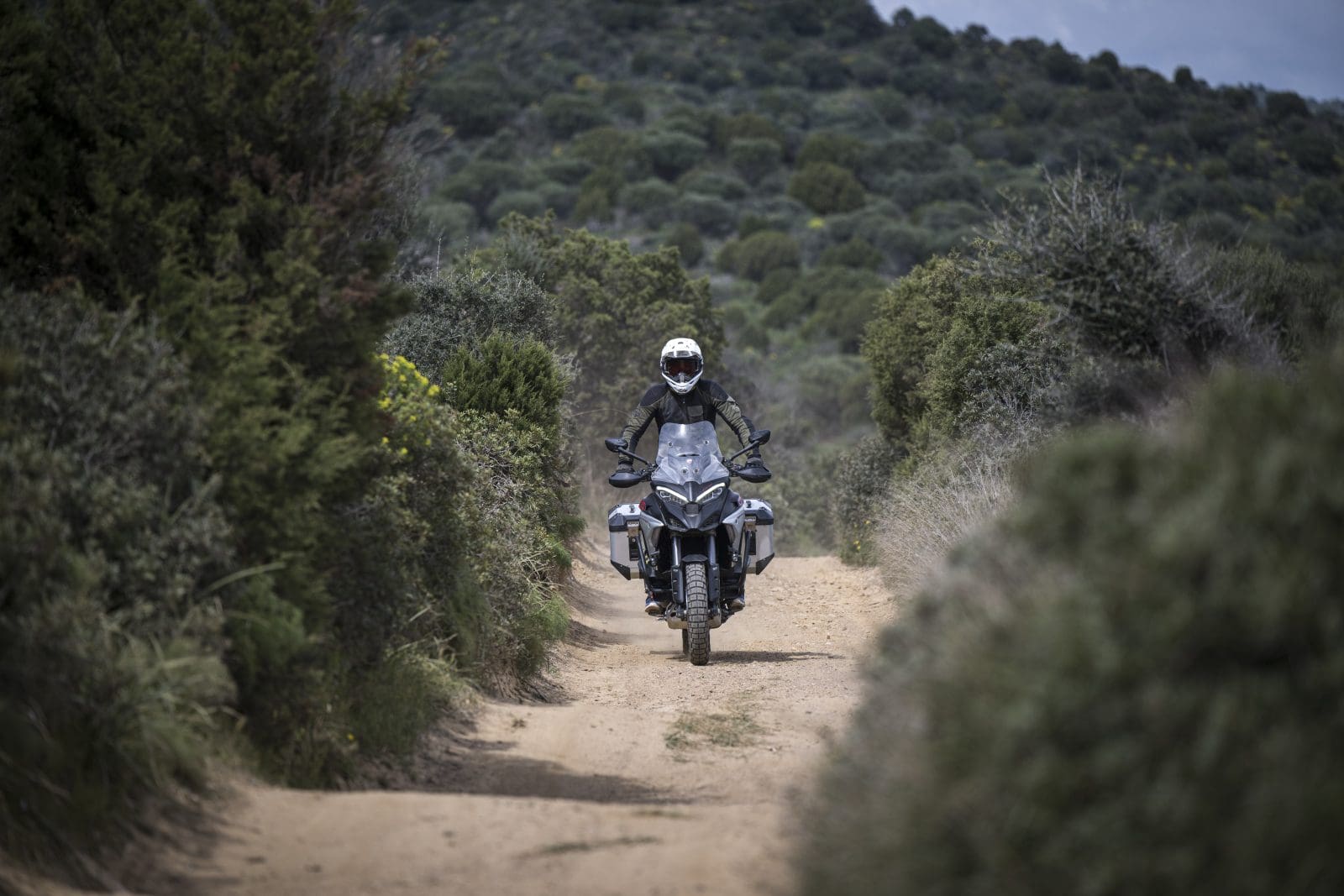
BMW’s R 1250 GS Adventure has dominated this all-round sector of the big adventure bike market for years. Now, with the V4 Rally, Ducati is a serious contender to be the new leader in the cut-throat class.

It’s comfortable and practical, rapid on road, supremely competent on gravel and fun everywhere in between. It boasts a powerful engine and superb brakes backed up by excellent ABS both on- and off-road.

And its handling is a revelation: genuinely sporty on asphalt and as competent as a specialist off-roader when the going gets mucky.
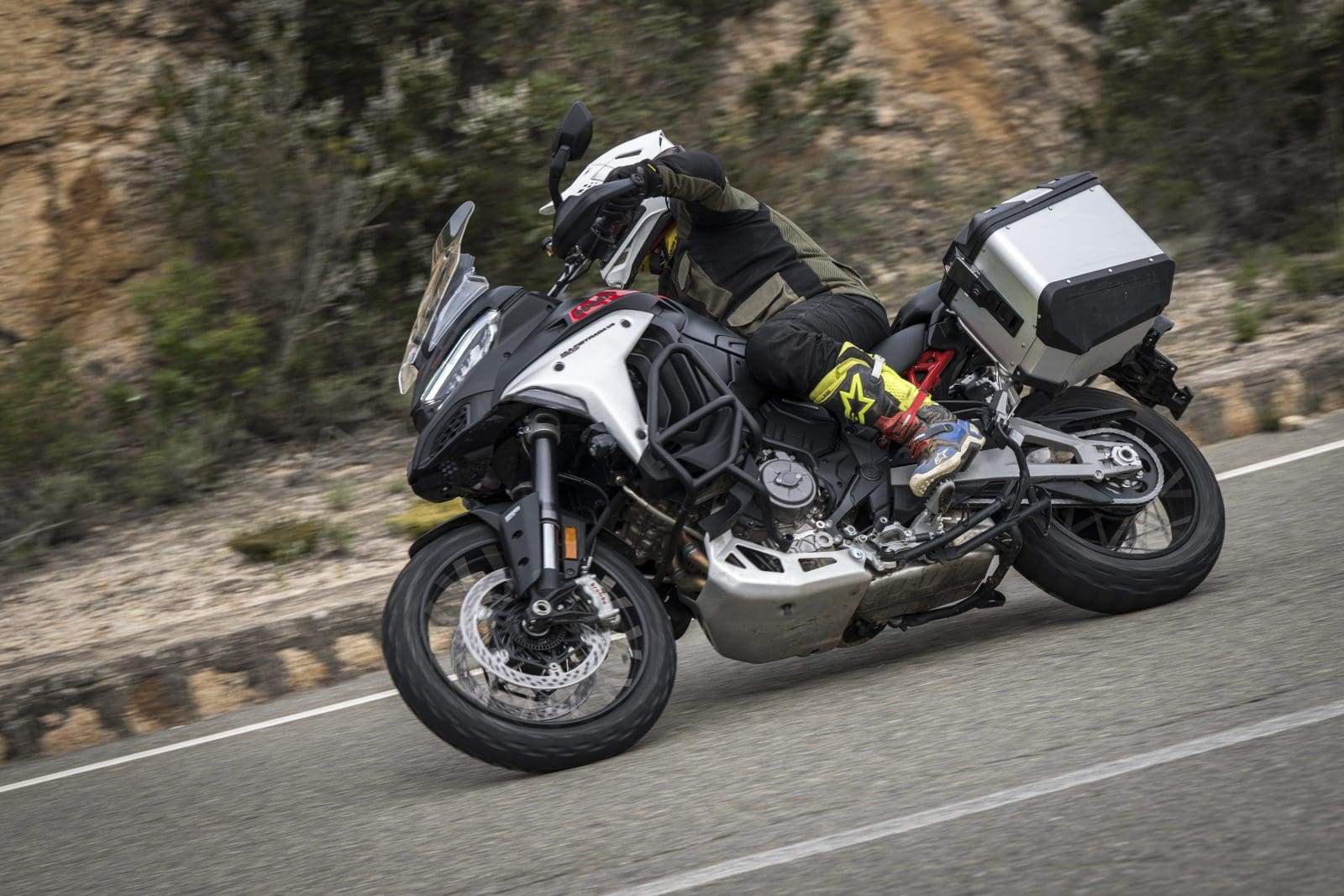
Add a plethora of rider aids, great detailing and stunning looks and it’s hard to find fault beyond the expense of actually buying one. Even short riders like me can reach the ground, thanks to the electronic shock which can lower the seat height at the press of a button.
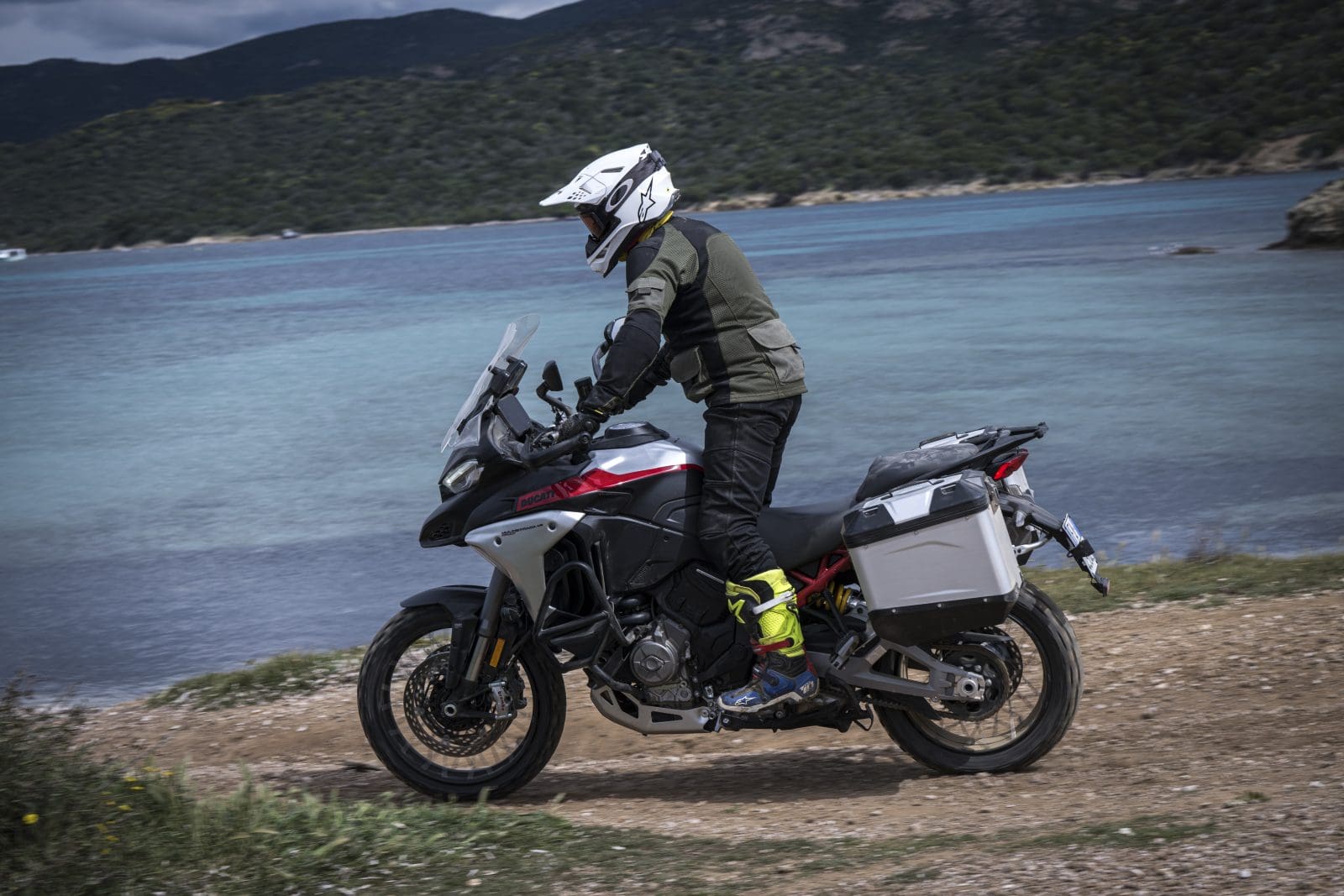
Motorcycle of the Year? Only a full test will decide for sure but, based on what we know so far, it’s a red hot favourite.
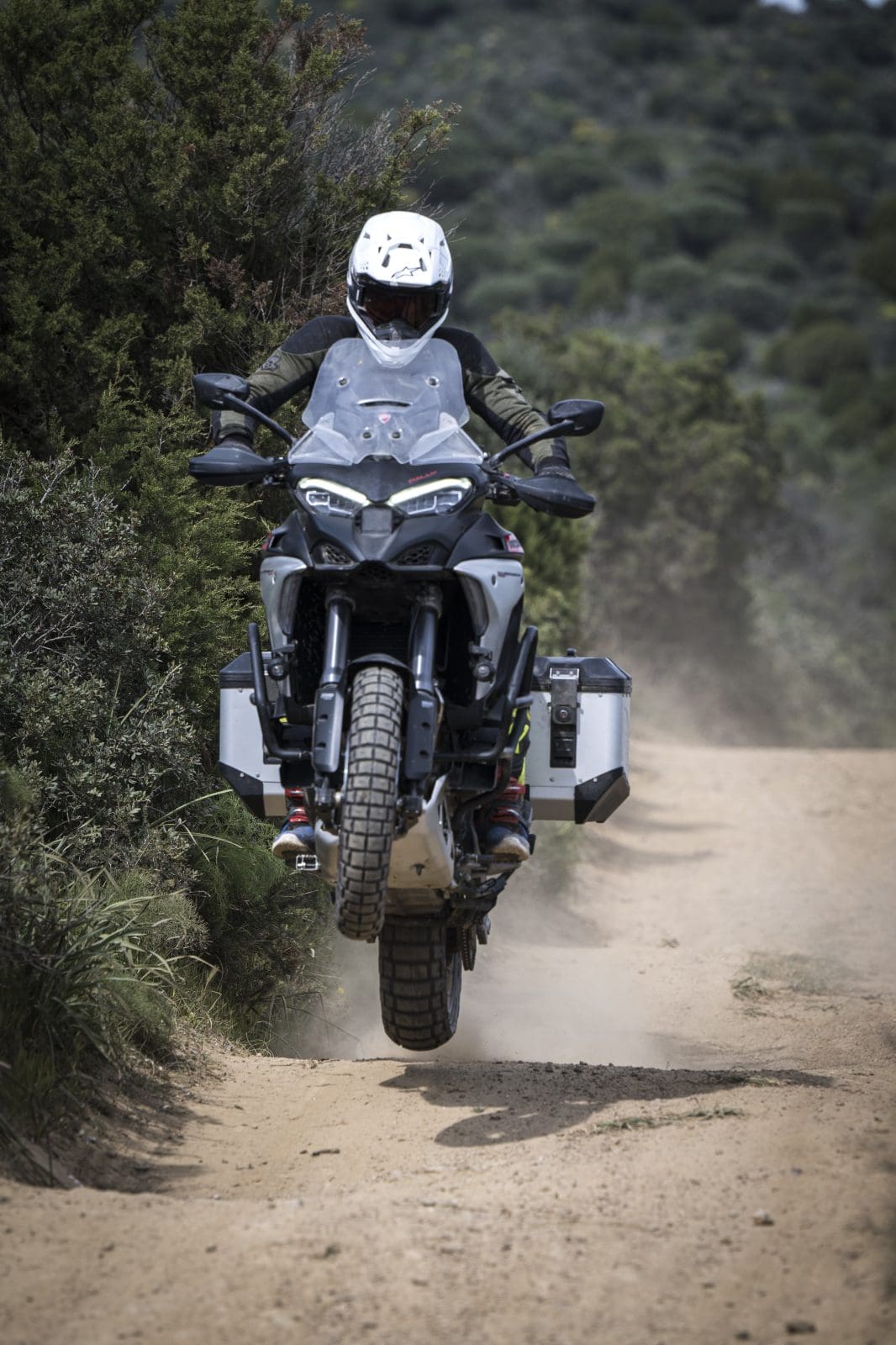
Test Adam Child + Photography Alex Photo
